 A La Carte: iPhones, idolatry, and evil spirits / At my mother's deathbed / Nothing to do but pray / Bible study tips for beginners / Jesus did condemn homosexuality / Please don't sing "Imagine" at funerals / Kindle and book deals.]]>
A La Carte: iPhones, idolatry, and evil spirits / At my mother's deathbed / Nothing to do but pray / Bible study tips for beginners / Jesus did condemn homosexuality / Please don't sing "Imagine" at funerals / Kindle and book deals.]]>
May the Lord be with you and bless you today.
On special this week at Westminster Books is a resource designed to help you teach theology to kids. You can also still get 50% off last year’s bestsellers.
Today’s Kindle deals include books for friends, grandparents, and counselors among others.
iPhones, Idolatry, and Evil Spirits
Don’t be too quick to discount this altogether. “What’s going on? Why are we so hooked? Why do we often admit that our phones are not good for us and yet continue our voluntary enslavement anyways? The question I’m really asking is: Is there something spiritual going on? In the constant pull toward our screens, could supernatural forces be involved?”
At My Mother’s Deathbed, I Discovered the Symmetry of a Long Life
You may need a free CT account to read this article by Jen Wilkin, but it should prove worth it. “The chiasm of a human life. The idea is not unique to me. I recall the saying that we are first children to our parents, then parents to our children, then parents to our parents, and finally children to our children.”
Nothing to Do but Pray
Marissa Henley talks about those times when there is nothing we can do for our kids but pray.
Bible Study Tips for Beginners: How to Use Cross-References in the Bible
Jana wants to make sure you know how to use the cross-references in your Bible. She also explains some of what you stand to gain by doing so.
Jesus Did Condemn Homosexuality
We often hear that if homosexuality had been important to Jesus he would have said something about it. But, as Alan shows here, Jesus did say something about it. (It’s also important to note that even if Jesus didn’t say anything about it, it would not change anything since the Bible is perfectly clear on the matter.)
Please Don’t Sing ‘Imagine’ at Funerals
I second this one: Please don’t sing “Imagine” at funerals. “In contrast to Lennon’s nihilist proclamation, people want to know that there is hope beyond a crisis and that there is hope when faced with mortality. Imagine gives little consolation to a gravely ill person that not only is death imminent, but that it is ultimately meaningless. This atheistic ethic doesn’t do much to help grieving families who have just witnessed a loved one being ripped from their lives.”
Flashback: Life Without Romans 8:28
…it has been my experience that in my lowest moments I have feasted on Romans 8:28, I have run to it like a starving man runs to a meal and I have drunk from it like a parched man drinks from an oasis.
]]> My family experienced some difficult days through the holiday season. These were the kind of days that involved ambulances, emergency rooms, bleeds, broken bones, and even terrifying diagnoses that, thankfully, turned out to be misdiagnoses. We entered this new year thankful for the holidays but also thankful to be through them. And, to be honest, we also entered this new year a little bit frazzled and on edge.]]>
My family experienced some difficult days through the holiday season. These were the kind of days that involved ambulances, emergency rooms, bleeds, broken bones, and even terrifying diagnoses that, thankfully, turned out to be misdiagnoses. We entered this new year thankful for the holidays but also thankful to be through them. And, to be honest, we also entered this new year a little bit frazzled and on edge.]]>
My family experienced some difficult days through the holiday season. These were the kind of days that involved ambulances, emergency rooms, bleeds, broken bones, and even terrifying diagnoses that, thankfully, turned out to be misdiagnoses. We entered this new year thankful for the holidays but also thankful to be through them. And, to be honest, we also entered this new year a little bit frazzled and on edge.
I went for a walk in the early hours of 2025. I needed some time to process all this and to think and pray about it. The sky was dark, snow was falling, and I was following a single set of footprints that had passed through the streets a short time before me. There was one thought that was fixed in my mind and one set of questions.
The questions were these: Will my faith fail? Will my trust waver? Will my confidence give way?
I’m thankful that most of the medical issues have since been resolved. In fact, most were found to barely be problems at all, even though they certainly appeared dire in the moment. The scariest of them all was found to be a complete misunderstanding of the facts by a doctor who ought to have known better. And we understand—mistakes happen.
So, apart from some common and minor ailments, we are well and are beginning this new year in good condition. But what if some of those diagnoses had been true? Or what if we really had experienced the worst and there had been yet another empty seat around our table? Would my faith fail, or my trust waver, or my confidence give way?
Those questions led to this thought: There is a version of the prosperity gospel that we can all believe in and it goes something like this: “God, I gave my life to you, and in exchange I expect you to make my life easy. I may not need riches or opulence, perfect health or abundant wealth, but I would like ease. And if you take that ease from me, I may just assume that your feelings for me have altered or your love for me has waned. I may even regret following you. Please, just keep my life easy.”
I know better than this. I know that the call to follow God is the call to submit everything to him and be willing to live within the circumstances he deems suitable. It’s to believe that this is my Father’s world rather than mine so that the version of reality he reveals is superior to the one I might desire. It’s to bank not just eternity on him, but time as well and not just to trust him with what follows death but with what comes before it as well.
But sometimes it’s hard and sometimes it’s tough to believe that his way really is best. Sometimes it’s hard to accept that he really knows what he’s doing and that from a heavenly perspective I’ll see what he did and say, “You knew best all along.”
But that morning, as I walked the snowy streets, I knew I needed to. I needed to begin this year with faith, with the kind of faith that doesn’t just bank on God for salvation but banks on him for everything that comes along the path to heaven—the kind of faith that isn’t just confident in his plan of salvation but his plan for my life and the lives of those I love. I knew I needed to express my willingness to submit to his will even if it leads to pain or takes the ones I love. I knew I needed to reaffirm my confidence that Romans 8:28 is true and that God actually is working all things in such a way that they will ultimately prove to have been for my good and his glory. I knew I needed to simply trust.
And by his grace he allowed me to do that. He allowed me to pray a prayer that Christopher Newman Hall wrote long ago, one that admits the uncertainty we feel but also professes deep confidence in the Lord and trust in his way. This prayer has begun my year and I pray it shapes my year. Perhaps it can prove meaningful to you as well.
]]>Thy way, O Lord! Thy way—not mine!
Although, opprest,
For smoother, sunnier paths I pine,
Thy way is best.Though crossing thirsty deserts drear,
Or mountain’s crest;
Although I faint with toil and fear,
Thy way is best.Though not one open door befriend
The passing guest;
Though night its darkest terror lend,
Thy way is best.So seeming wild without a plan,
Now east, now west,
Joys born and slain, hopes blighted, can
Thy way be best?My soul by grief seems not to be
More pure and blest;
Alas! I cannot, cannot see
Thy way is best.I cannot see—on every hand
By anguish prest,
In vain I try to understand
Thy way is best.But I believe—Thy life and death,
Thy love attest,
And every promise clearly saith—
“Thy way is best.”I cannot see—but I believe;
If heavenly rest
Is reached by roads where most I grieve,
Thy way is best.
 I have wide-ranging tastes in music and will gladly listen to all kinds of different genres. I recently spent some time considering some of the new songs I enjoyed in 2024 and, focusing on songs by Christian artists, eventually narrowed my favorites down to this list of 10—my 10 favorite new songs of 2024. I’ve included YouTube videos and a Spotify playlist if you’d like to give them a listen yourself. They are in no particular order.]]>
I have wide-ranging tastes in music and will gladly listen to all kinds of different genres. I recently spent some time considering some of the new songs I enjoyed in 2024 and, focusing on songs by Christian artists, eventually narrowed my favorites down to this list of 10—my 10 favorite new songs of 2024. I’ve included YouTube videos and a Spotify playlist if you’d like to give them a listen yourself. They are in no particular order.]]>
I have wide-ranging tastes in music and will gladly listen to all kinds of different genres. I recently spent some time considering some of the new songs I enjoyed in 2024 and, focusing on songs by Christian artists, eventually narrowed my favorites down to this list of 10—my 10 favorite new songs of 2024. I’ve included YouTube videos and a Spotify playlist if you’d like to give them a listen yourself. They are in no particular order.
“Faith More Precious Than Gold” by Mission House
This song from Mission House (aka Jess Ray and Taylor Leonhardt) is a powerful and encouraging proclamation of faith amid deep trials.
There is a secret we can only know
Walking through places we don’t want to go
Cause in the dark we learn the song of hope
Our faith more precious than gold
…Tears on the altar from all we’ve lost
Following you no matter what it cost
May be a whisper, may be a roar
This is the sound of those who love you Lord
“His Glory and My Good” by CityAlight
It is a safe bet that there will always be a CityAlight song on my list and that’s the case again this year. “His Glory and My Good” is a song of trust in God’s sovereignty that is based on the promise of Romans 8:28. I think it is one of CityAlight’s best songs yet.
There is hope in every trial
For I can trust the Lord
He will turn my heart towards Him
And help me bear the thorn
So in faith I follow Jesus
On the road not understood
For I know that He is working
For His glory and my good
“All Things” by Sovereign Grace Music
Sovereign Grace also released a song based on Romans 8:28 and, while it is very different, it is equally good.
I know You are working
You are working all things
All things for Your glory and my good
Lord You will accomplish
Everything You promised
All things for Your glory and my good
“Rise My Soul the Lord is Risen” by Getty Music
I love a good collab and that’s the case with “Rise My Soul the Lord Is Risen” which (a little confusingly) was written by Matt Papa & Matt Boswell along with Jonny Robinson & Rich Thompson of CityAlight and then performed and released by the Gettys. There is also a CityAlight version. It is an ideal Easter song.
Rise my soul, the Lord is risen
Come behold the empty grave
See the place where darkness laid Him
Sing for only hope remains
Hallelujah, praise forever
Death defeated and life restored
By that great immortal power
Christ is risen, arise my soul
“Run and Run” (Christ Is All My Righteousness) by Matt Boswell & Matt Papa.
This song is based on a short poem that has been attributed to various people over the years, though most commonly John Bunyan. The poem, and hence the song, compares the hopelessness of the law with the freedom of the gospel.
Run and run the law demands
But gives me neither feet nor hands
Better news, the gospel brings
It bids me fly, it gives me wings
Bearing shame and all my sin
There in my place He stood condemned
Here I stand now justified
My guilt is His, His grace is mine
“Christ Our Wisdom” by Sovereign Grace Music
The theme of God’s love for us in our times of difficulty is prominent this year. This song by Sovereign Grace Music returns to that theme and professes confidence in God no matter what his providence directs. This is a good song to add to a church’s repertoire.
Christ our wisdom, we are humbled
When You hide Your ways from us
You have purposes unnumbered
Each one good and glorious
Help us trust when we grow weary
Free us from our anxious thoughts
Give us grace to see more clearly
You are God and we are not
“O Freedom” by Anchor Hymns
This song from Anchor Hymns is an expression of praise to God for his mercy and grace. It is probably not ideal for congregational singing, but a good one to just enoy and sing along to.
Lift me up and set my feet on the rock
Lift me up and set my feet on the rock
When I stray, When I roam
Call my name, Call me home
Lift me up and set my feet on the rock
“Hold Him High” by Citizens
Citizens packs a lot of great doctrine into this song of praise to Jesus Christ.
Holiest Son of man
Worthy and lifted lamb
Heaven’s exalted King
He is our righteousness
Light of the world in us
There is no brighter love
Hold Him high, glorious Jesus Christ
“Bring Praises” by Matt Boswell & Matt Papa
Here is another song by Matt Boswell & Matt Papa. It marvels at God’s goodness to us, admits the inadequacy of any human response, but then calls on us to praise God nevertheless.
If we could now repay the Lord of heaven
What is that gift that we would bring?
All that is ours is that which once was given
Oh, let our grateful hearts now sing
With joy we give this offering
“The Richest Man in the World” by Ben Rector
I really enjoy Ben Rector’s music and was especially touched by this song (part of a 3-song EP that is all about his love for his family). In it he expresses how much more his family means to him than any awards or accolades. I suppose the doctrine may not be 100% perfect, but I appreciate it nonetheless!
When it’s my turn I think I’ll smile
Say I was
The richest man in the world
Father to a baby girl
And two boys that I know loved me
Was famous to a few good friends
And beside me til the end
Was my wife who is so lovely
And I don’t know who could ask for any more
I’m the richest man in the world
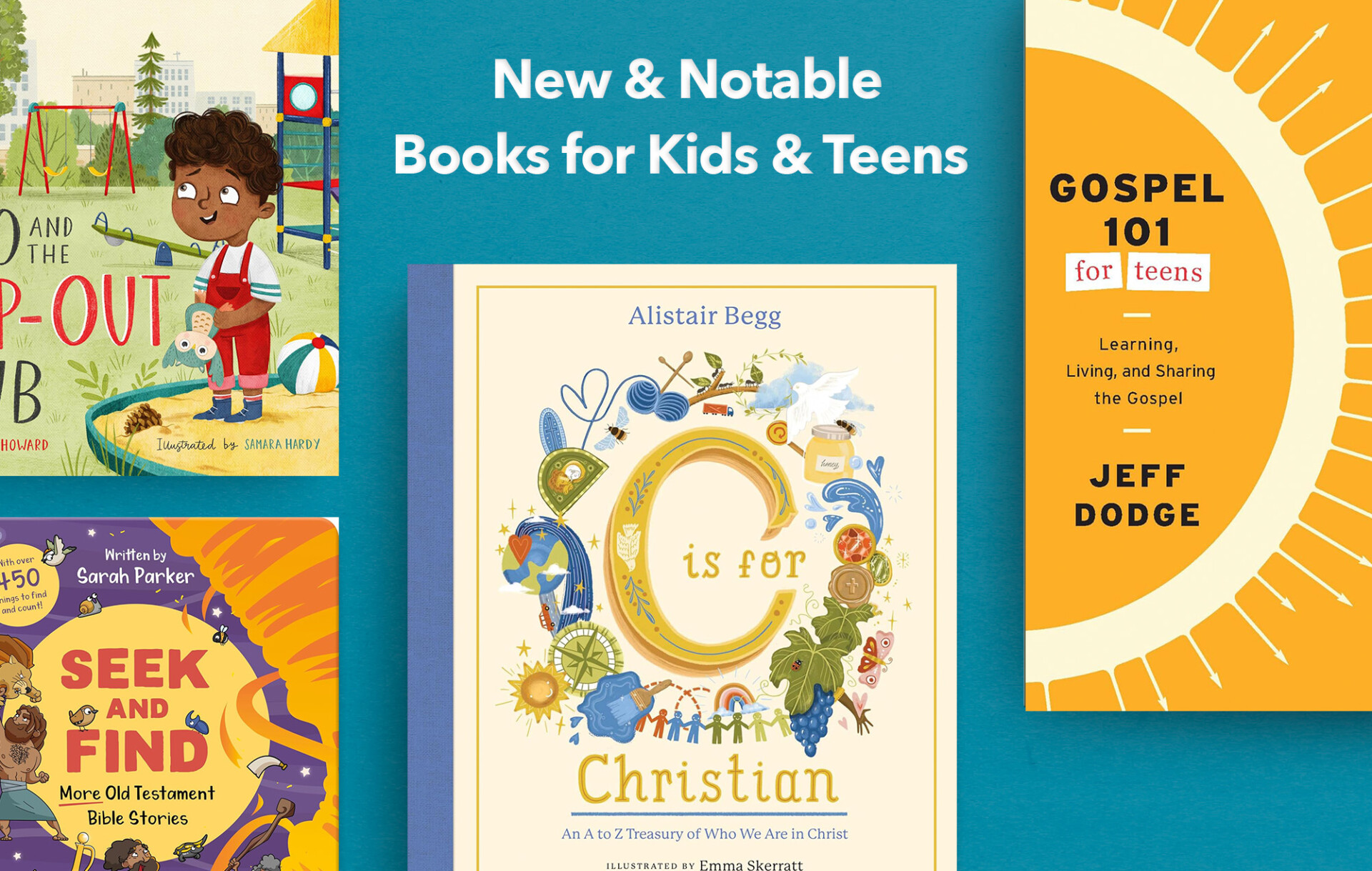 Every month I put together a roundup of new and notable books for grownup readers. But I also receive a lot of books for kids and teens, so like to put together the occasional roundup of these books as well. So today I bring you a whole big batch of new books for kids of all ages (up to and including teens).]]>
Every month I put together a roundup of new and notable books for grownup readers. But I also receive a lot of books for kids and teens, so like to put together the occasional roundup of these books as well. So today I bring you a whole big batch of new books for kids of all ages (up to and including teens).]]>
Every month I put together a roundup of new and notable books for grownup readers. But I also receive a lot of books for kids and teens, so like to put together the occasional roundup of these books as well. So today I bring you a whole big batch of new books for kids of all ages (up to and including teens.
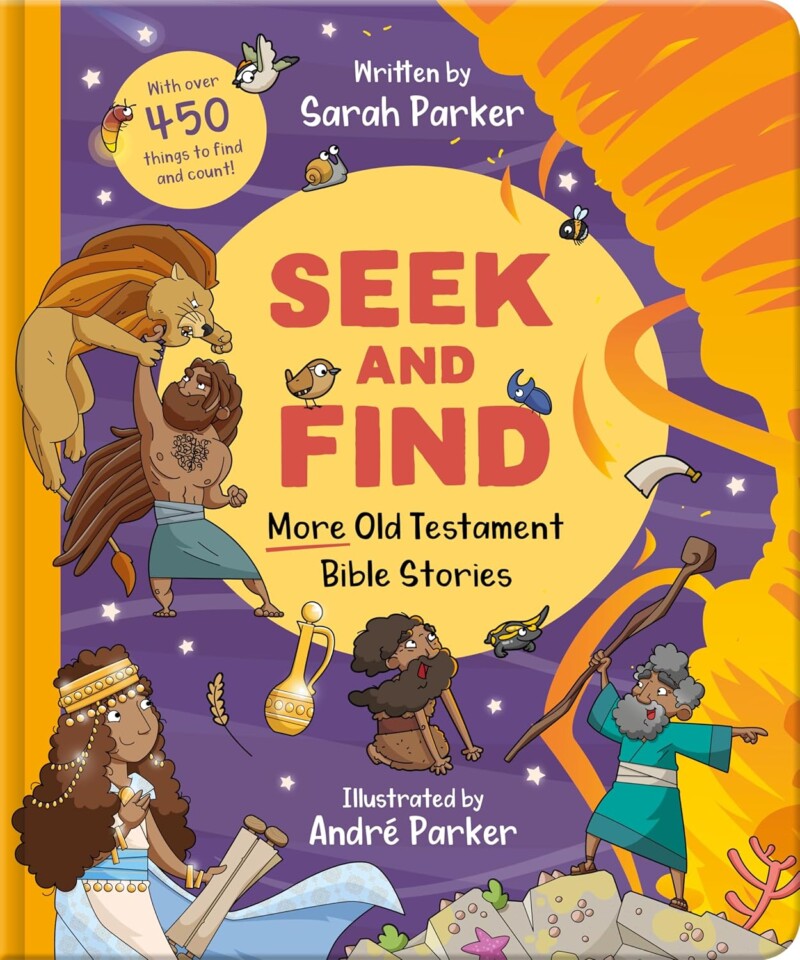
Seek and Find: More Old Testament Bible Stories: With over 450 Things to Find and Count! by Sarah Parker. Seek-and-find book exploring eight more Old Testament stories, the characters within them and the character of our amazing God. Seek & Find: More Old Testament Bible Stories contains eight more stories from the Old Testament with over 450 hidden things for young children to find, count, and sort as they interact with the Bible stories. Both the retellings and illustrations are biblically faithful and children will learn all about eight well-known Old Testament characters, including Joseph, Elijah and Esther.” (Buy it at Amazon or Westminster Books)
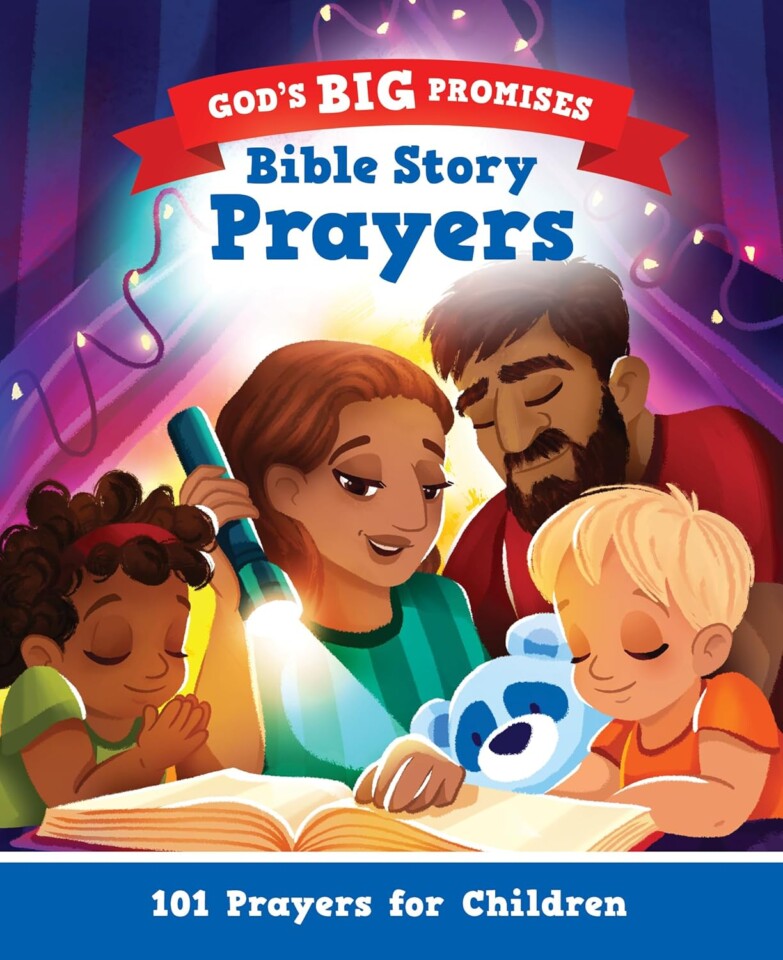
God’s Big Promises Bible Story Prayers: 101 Prayers for Children by Carl Lafterton. “Pray with your children in response to Bible truths using this beautifully illustrated book of prayers. Each page begins with a Bible-story summary and a verse from the Bible, followed by a responsive prayer. Children will learn to say wow, thank you, sorry and please as they get to know God better. There are even actions to go with each response! Features: 92 prayers that relate to the 92 stories featured in God’s Big Promises Bible Storybook, so you can use this prayer book alongside the Bible Storybook; 9 additional prayers specifically for bedtime that are based on Bible verses. They will help kids to give thanks and know that God is with them as they go to sleep; An index of prayers at the back linking to prayers for particular circumstances or feelings, such as prayers when feeling anxious, prayers when feeling tired, and prayers when feeling scared.” (Buy it at Amazon or Westminster Books)
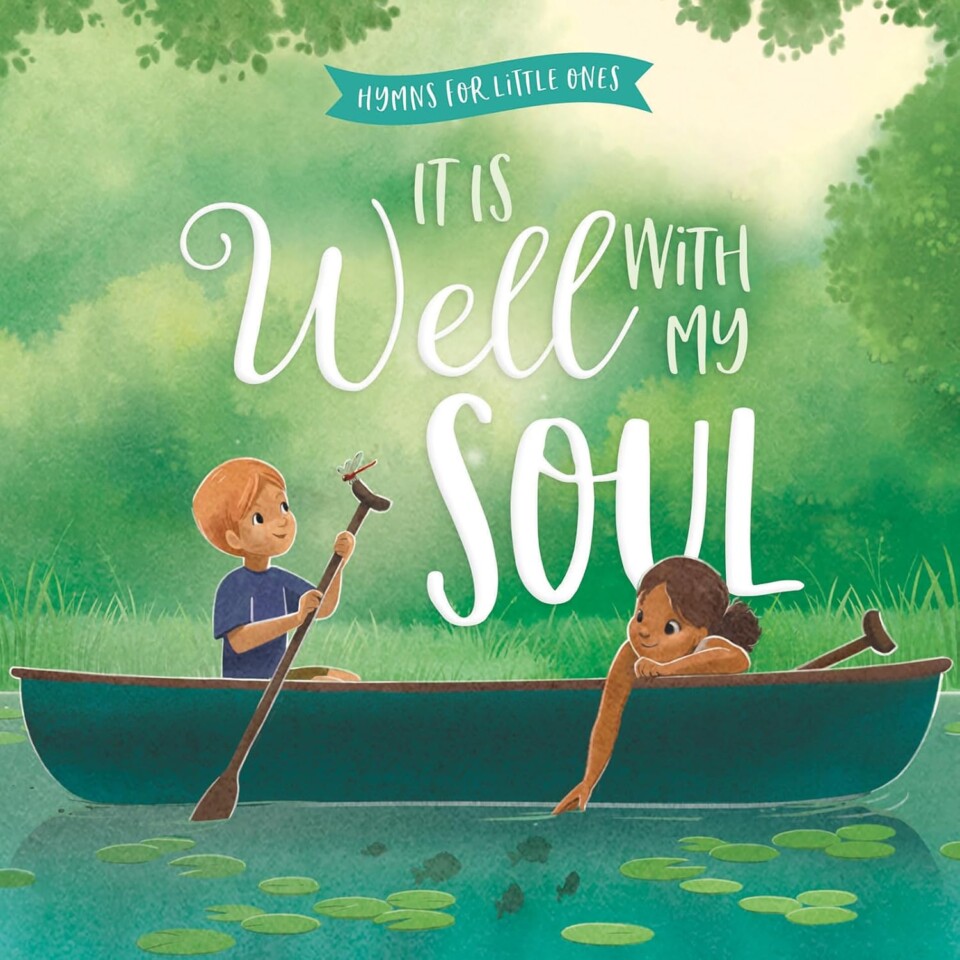
It Is Well with My Soul (Hymns for Little Ones). “It Is Well with My Soul introduces little ones to the one of the most timeless, enduring anthems of the Christian faith in a fun and colorful way. Celebrating its 150th anniversary in 2023, It Is Well with My Soul has given strength and solace to generations of believers. This beloved hymn is a powerful reminder of God’s promise of peace amid life’s most daunting trials. Now little ones can experience the comfort and reassurance of this Christian classic for the first time. The lyrics are paired with whimsical watercolor art that celebrates the joy and wonder of God’s world. In the back of the book, you’ll find the sheet music and lyrics. Hymns for Little Ones is a series of creative and colorful board books that introduce young children to the most inspiring and influential Christian anthems of all time. Little ones will learn truths about God in the lyrics of these impactful hymns.” (Buy it at Amazon or Westminster Books)
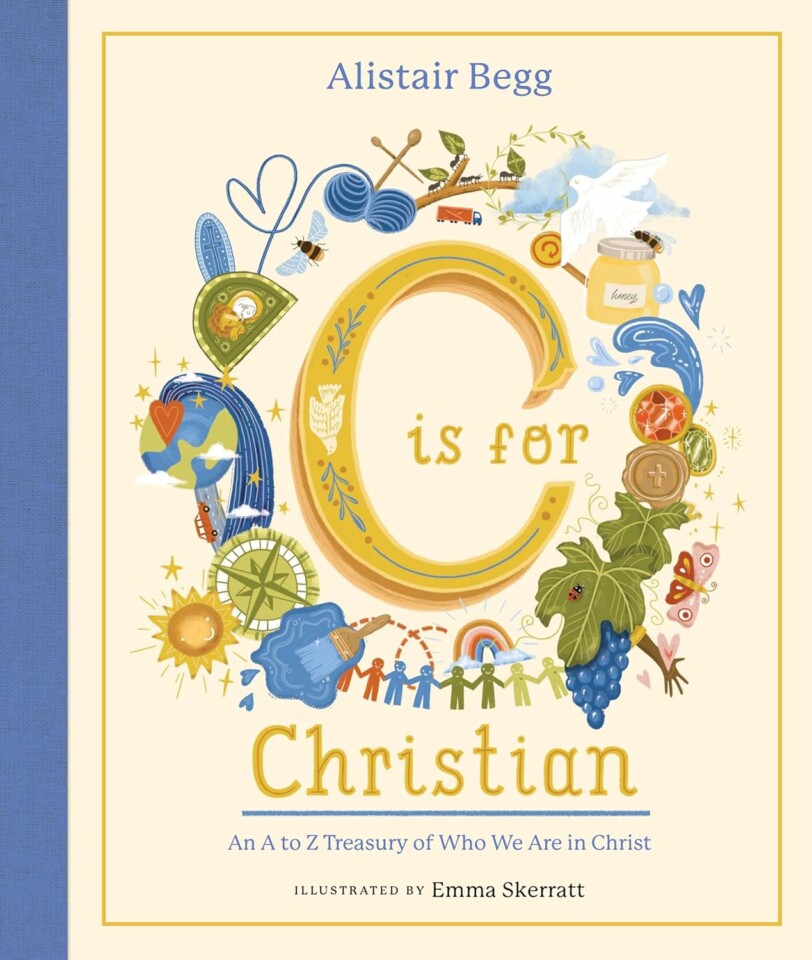
C Is for Christian: An A-Z Treasury of Who We Are in Christ by Alistair Begg. “Excite kids about how great it is to be a Christian with this beautifully illustrated treasury of theological truths. Going from A to Z, kids will learn about the amazing things that are true of us if we know Christ. For example: A is for Adoption – we are children of God, part of his beloved family; B is for Branch – we are connected to Jesus, the vine, and he gives us life and all we need; C is for Citizen – we have a place in heaven, which is where we are heading. Each letter teaches children about an aspect of our identity in Christ using Bible verses and clear engaging teaching by Alistair Begg. Reflection questions and prayers are included, making it possible to use this resource devotionally. It can also be used as a kind of catechism, summarizing some of the Bible’s truths about being a Christian. The alphabet format makes these theological truths easy to remember. Can be read to kids 4+ or read by kids 7+.” (Buy it at Amazon or Westminster Books)
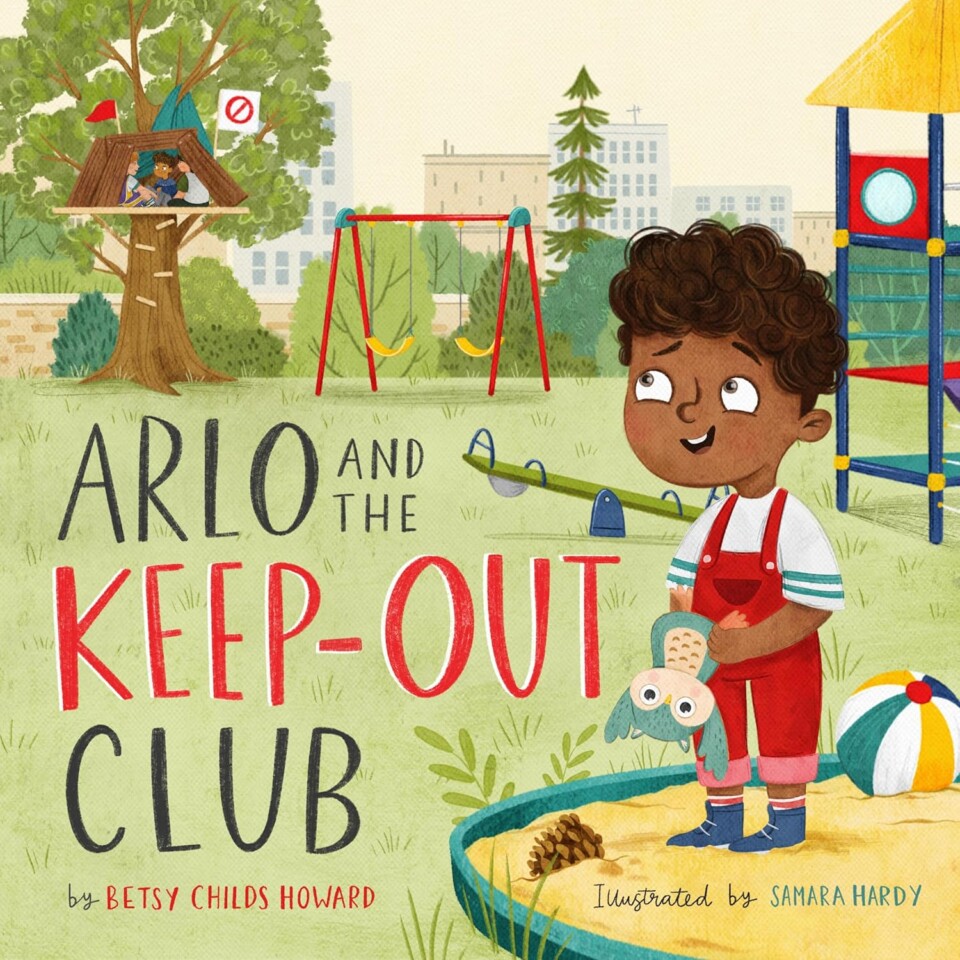
Arlo and the Keep-Out Club by Betsy Childs Howard. “Arlo has been longing to play with the big boys on the playground. But when he’s given the opportunity to join their club, he is faced with a tough decision. Will he gain the acceptance of his new friends by doing what he knows is wrong, or will he do the right thing even though it may lead to rejection? Going against the social grain can often leave us feeling lonely, but in his grace, Jesus enables us to do what is right and stays by our side when we feel left out. Written for kids ages 3–7, this engaging picture book teaches children that following Jesus may come at a cost, but the Lord offers a greater reward as our ultimate friend and comforter. A section for parents at the end of the book provides tips for raising children who can resist negative peer pressure.” (Buy it at Amazon or Westminster Books)
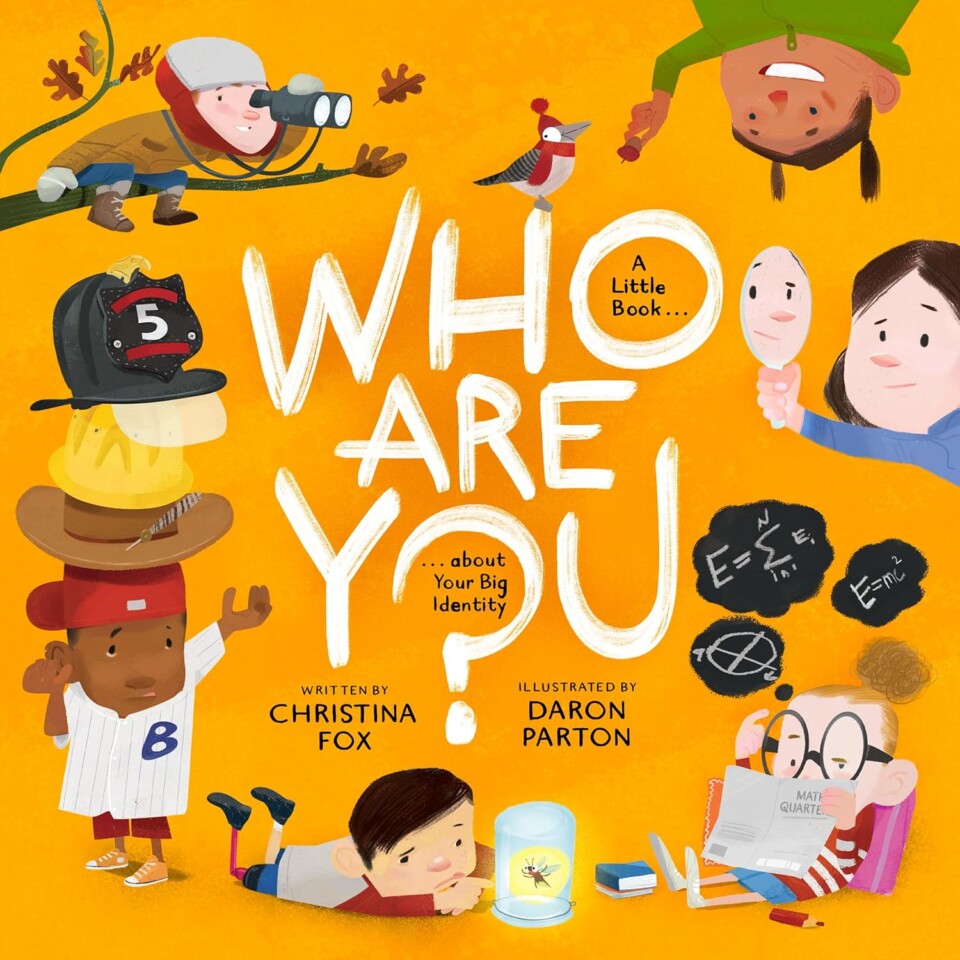
Who Are You?: A Little Book about Your Big Identity by Christina Fox. “Kids have an innate curiosity to explore and discover new things about themselves—they learn their strengths and talents, their preferences and quirks, all while celebrating little victories along the way. While these milestones are undoubtedly important for developing children, our culture mistakenly views them as the foundation of who they are. Deeply biblical and visually engaging, this picture book uses lyrical rhymes to help children ages 3–5 understand that their true identity is not found in their preferences, past actions, or current emotions. Instead, it is rooted in their relationship with their Creator and Savior. The one who fashioned them in his likeness and calls them to live a life for his glory. A note to parents section at the end of the book offers practical tips and additional Bible verses for instilling these truths in children as they navigate the world and build the foundation of their lives.” (Buy it at Amazon or Westminster Books)
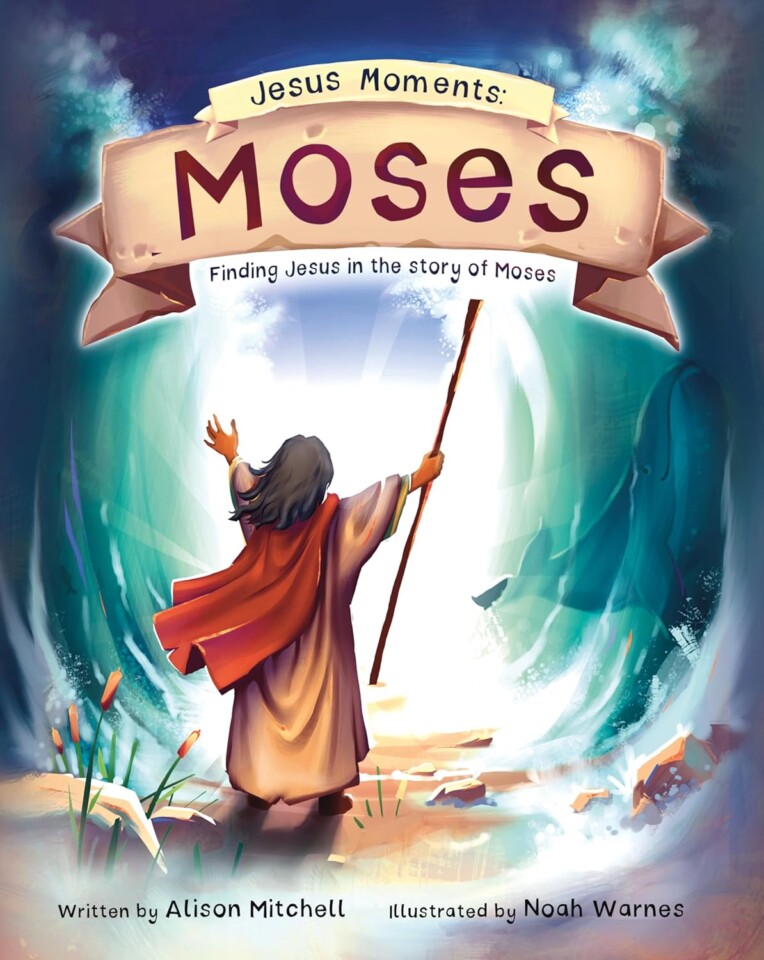
Jesus Moments: Moses: Finding Jesus in the Story of Moses by Alison Mitchell. “Help 4-7s learn how Moses points to Jesus with this beautifully illustrated Old Testament storybook from Alison Mitchell, the award-winning author of Jesus and the Lions’ Den and The One O’Clock Miracle. Moments in Moses’ story when something in the story is a little bit like Jesus are signposted with symbols that children need to spot, helping them to understand the relationship between the Old and New Testaments. This fun, interactive resource will give children skills to read the Bible as they connect the stories and learn that the whole Bible is about Jesus. Great for parents or grandparents to give children aged 4-7. Can also be used for children’s ministry in church.” (Buy it at Amazon or Westminster Books)
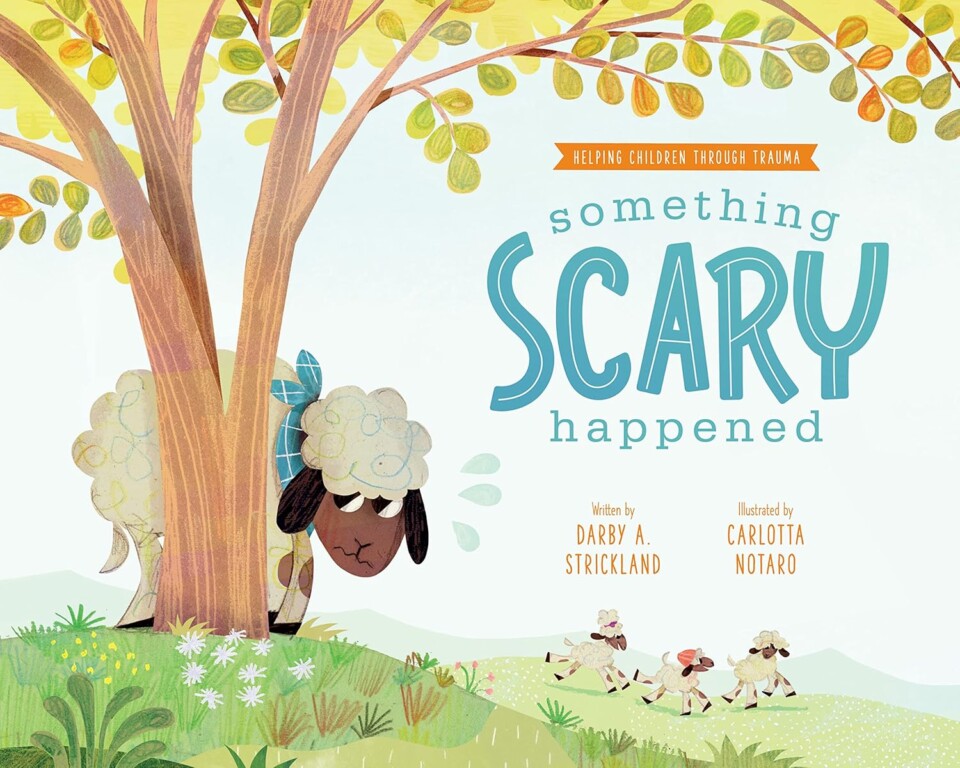
Something Scary Happened: Helping Children with Trauma by Darby Strickland. “Miles is a happy little lamb until something bad happens. All of a sudden, Miles feels like he is alone in a deep dark valley, but it is there in the valley that he meets his good Shepherd who promises to always be with him, no matter what. Counselor and trauma expert Darby A. Strickland uses the story of Miles to help parents and caregivers share the comfort of taking their fears to the good Shepherd by applying Psalm 23 to difficult experiences. Through a special section at the end of the book, Strickland helps parents recognize the feelings and behaviors children might have in response to their trauma and guides them in how to help children talk about what scared them.” (Buy it at Amazon or Westminster Books)

The Big Big Big Christmas (That Was Also Very Small) by Mei Shan Dibble. “The wonder of the incarnation told in a fresh, funny and child-friendly way This hilarious series of zany comparisons that get bigger and bigger will help children discover just how big God is and how completely mind-blowingly amazing it is that he became a tiny baby at Christmas.” (Buy it at Amazon or Westminster Books)

Joni Eareckson Tada: The Girl Who Learned to Follow God in a Wheelchair by Kristyn Getty. “In this beautifully illustrated hardback, Kristyn Getty recounts Joni Eareckson Tada’s lively childhood, life-changing accident and challenging adjustment to a very different way of life, and shares how God has used her in amazing ways to bless others. Children will hear how, when a terrible diving accident left her severely disabled, Joni was left with a lot of questions about God. It was easy to trust him when she was healthy and happy, but did she want to follow him now that life was so hard? As young ones discover how God cared for Joni and how Joni held on to her faith and used her circumstances to love others, they’ll be inspired about the great things they can do for God. And they’ll be encouraged to be a friend to those with disabilities or in hard situations.” (Buy it at Amazon or Westminster Books)

The Long Road Home: A Tale of Two Sons and a Father’s Never-Ending Love by Sarah Walton (coming on October 29). “In this creative retelling of the parable of the Prodigal Son, the youngest son, Wander, was willing to give up everything for his independence―including a relationship with his father and brother Goodness. With his father’s cash in hand, he left for the alluring towns of Perfection, Prosperity, and Popularity. Each new town brought a brief sense of happiness, but eventually, as the excitement wore off, he was overcome by a deepening sense of emptiness. It was then that Wander remembered his father’s words, ‘Wherever you go, my son, I want you to remember that I love you with a never-ending love.’ The Long Road Home retells this powerful parable in a creative and understandable way for children ages 6–8. As kids hear about Wander’s difficult experiences and discuss them with their parents, they will learn joy is not found within themselves or in the world. Instead, children will rediscover the never-ending love of their heavenly Father, who gives them worth, hope, and identity when they put their trust in him.” (Buy it at Amazon)

Little Christmas Carol: The Illustrated Edition by Joe Sutphin. “Enjoy Charles Dickens’ beloved masterpiece, freshly imagined within an enchanting woodland realm. In 1843, Charles Dickens penned a story–a classic Christmas tale full of ghosts and the endearing humbug Ebenezer Scrooge. That story—which has captivated readers for over 150 years—is now accompanied by the delightful illustrations of Joe Sutphin. With charming woodland characters and settings that families will adore, readers will be transformed by A Little Christmas Carol. A tale of greed, regret, loneliness, reflection, compassion, hope, and a joyfully changed life, this beautifully illustrated edition will enliven the timeless classic for readers young and old. For the perfect family read-aloud, make A Little Christmas Carol a part of your family’s Christmas tradition. This new edition makes a wonderful gift.” (Buy it at Amazon or Westminster Books)
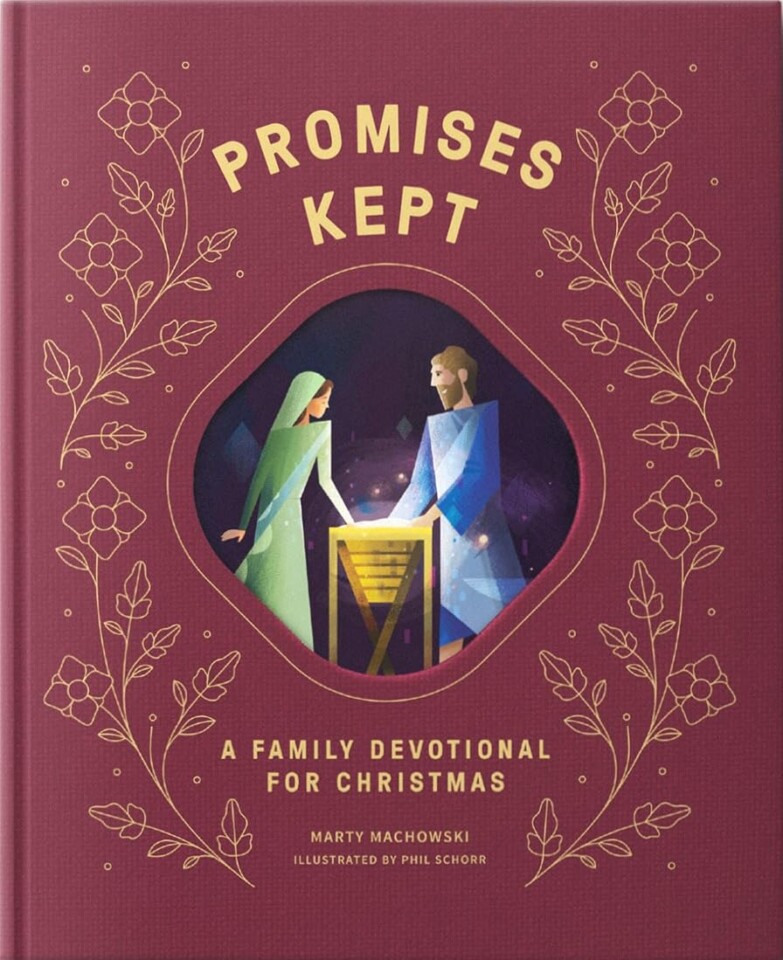
Promises Made Promises Kept: A Family Devotional for Christmas by Marty Machowski. “Marty Machowski’s Promises Made Promises Kept shows families how the birth and life of Jesus fulfilled God’s Old Testament promises of a Savior. Start a new family tradition for the Christmas season by reading this ‘upside-down’ book that includes fourteen Bible stories. Begin the week before Christmas with the first side, Promises Made which has seven stories that explore the Old Testament prophecies of the coming Messiah. On Christmas Day, flip the book over and continue by reading Promises Kept with seven more stories that vividly illustrate how Jesus’s life, death, and resurrection and the beginning of the church fulfill God’s promises. Machowski weaves the promises and fulfillments together into one harmonized story that will deepen the family’s faith in God’s power and control over all of history and their lives too. Each story also includes questions for the family to discuss together.” (Buy it at Amazon or Westminster Books)

Abigail and the Career Day Catastrophe: It’s Time to Be a Hero… Right? By Bethany McIlrath. “It’s nearly Career Day, and 9-year-old Abigail is trying to decide what she wants to be when she grows up. She wants to do something that will please God and her family, so she decides she will be a missionary police officer–a job that she thinks means behaving perfectly and making sure everyone else does too! But all her efforts seem to backfire. After some helpful Bible teaching from her loved ones about the story of Paul’s conversion, Abigail rethinks what it means to please God and to ‘be good’! This fun, relatable story will help kids to realize that it’s only through Jesus that we can please God. And with the Holy Spirit’s help, they can become more like Jesus and do good works with him. This is the second book in the Abigail series, a fictional series for readers aged 7 and up that follows the adventures of 9-year-old Abigail as she figures out what faith means for her everyday life. Young readers will be inspired to read the Bible, talk to God and apply what they believe to their own lives.” (Buy it at Amazon or Westminster Books)
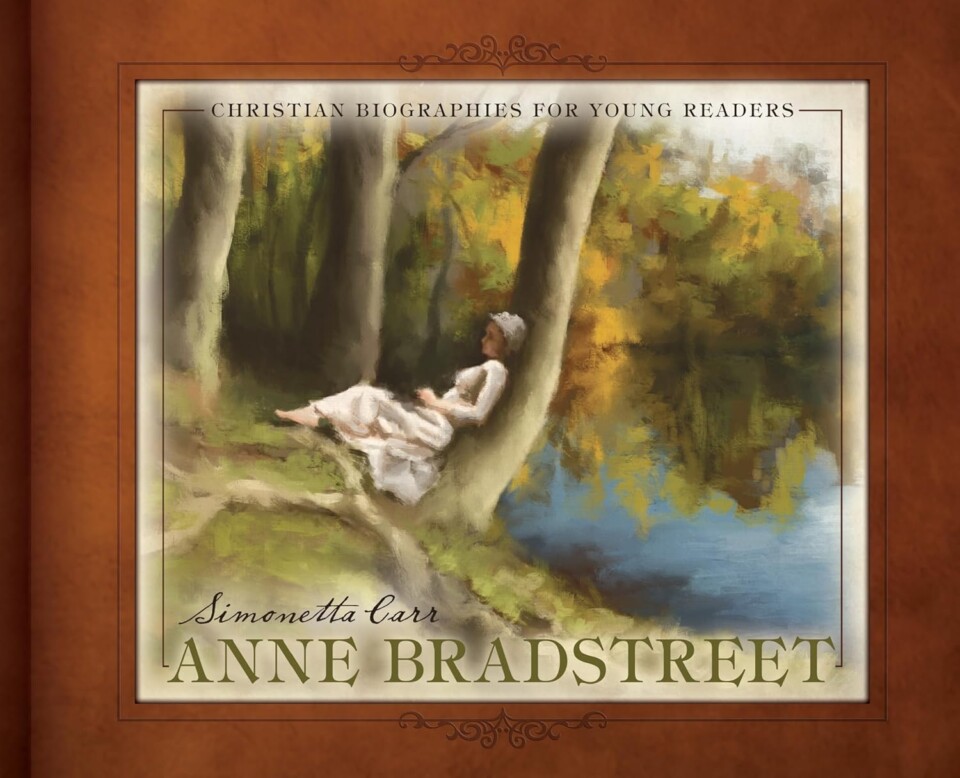
Anne Bradstreet by Simonetta Carr. “Did you know that the first published poet in America was a woman? As an American colonist, Anne Bradstreet’s poems give us a unique window into early colonial life. In this Christian Biography for Young Readers, Simonetta Carr shows us how Bradstreet overcame opposition from those who thought only men should write to produce beautiful poetry that encourages the church today. Complete with excerpts from her writings and engaging illustrations, Bradstreet’s story will remind you of the beauty of God’s creation, His faithfulness, and His unfailing promises.” (Buy it at Amazon or Westminster Books)

John and Charles Wesley: Two Brothers, One Faith by David Luckman. “Discover the inspiring story of John and Charles Wesley, two brothers who left an indelible mark on Christian history. Step into the 18th century and meet John and Charles Wesley, brothers whose unwavering faith sparked a spiritual revolution. Witness their transformative journey from the humble English countryside to the heart of a movement that changed the course of Christianity. Marvel at the thrilling tales of faith, courage, and resilience as the Wesley brothers navigate challenges, triumphs, and divine encounters. From the vibrant Oxford University to the bustling streets of London, this biography paints a vibrant tapestry of their lives, making history come alive for young readers.” (Buy it at Amazon)

Track: Politics: A Student’s Guide to Politics by Joshua Wester. “Joshua Wester encourages young adults to view politics through the lens of their Christian faith, and to test their beliefs against the Bible. People say that religion and politics shouldn’t mix, but God has a lot to say about how we live together. Politics touches many things in our lives, and so, as Christians, we should examine our political beliefs in the light of what God says. Joshua Wester tackles crucial topics that young adults should be thinking about as they think about how they engage with the political process and get involved in conversations about politics. The Bible calls us to be good citizens who love God and love our neighbour—how does that affect how we vote? An invaluable guide for those seeking to engage with the political process.” (Buy it at Amazon or Westminster Books)
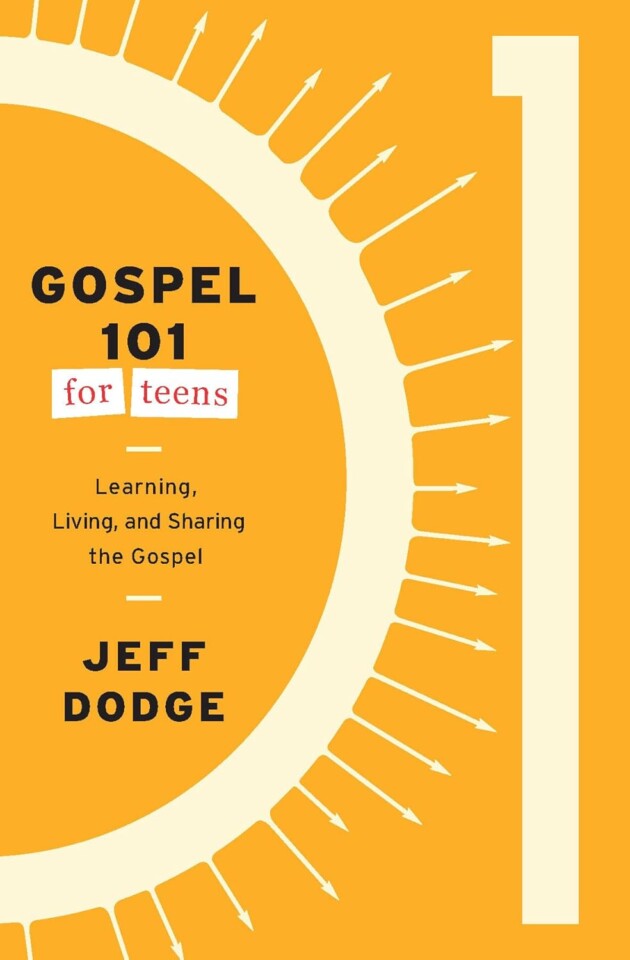
Gospel 101 for Teens: Learning, Living, and Sharing the Gospel by Jeff Dodge. “The gospel is the most powerful message in the world—it’s God’s dynamite to change hearts, lives, and communities. In Gospel 101 for Teens, Jeff Dodge communicates the good news of Jesus in a clear, understanding, and compelling way, inviting students to grow in gospel fluency, community, and action. Gospel 101 for Teens serves as an introductory-level course on the ‘big picture’ message of redemption. It equips teens with the language of the gospel to confidently move past the fear of sharing their faith with friends and classmates. By learning to share the gospel in their own words and explain why it matters, teens will be ready to communicate this message in a life-giving, clear, and personal way.” (Buy it at Amazon or Westminster Books)
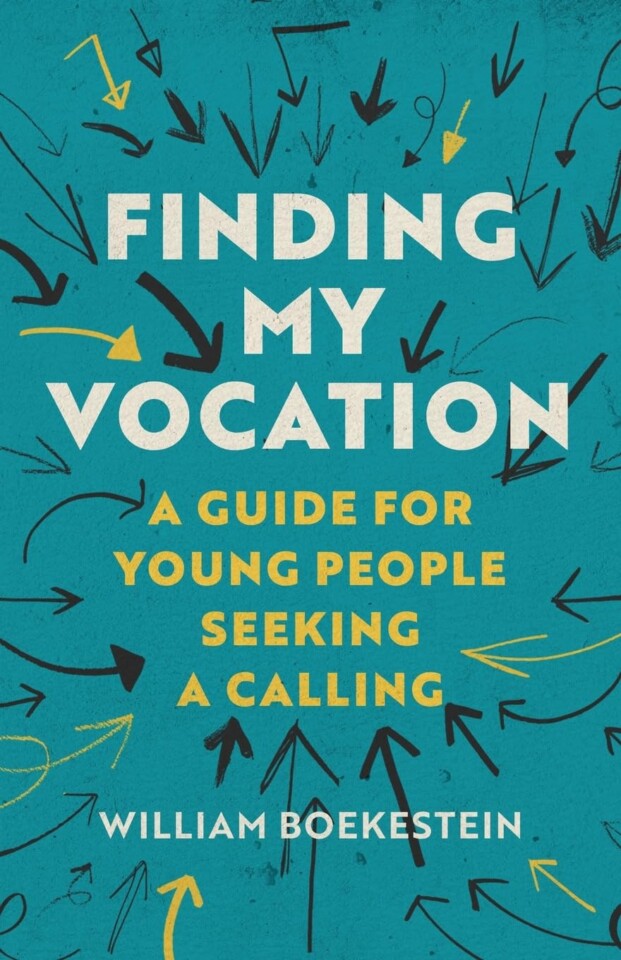
Finding My Vocation: A Guide for Young People Seeking a Calling by William Boekestein. “How can I pick the right job? Actually, you don’t need to choose a job that’s ‘perfect for you.’ But you do need to be faithful and productive in ways that honor God in your work life. Here’s a better question: As a believer, how can I determine what I am supposed to do, and then do it well? The doctrine of calling, or vocation, leads us to the answer. Because for those who are ‘called according to his purpose’ (Rom. 8:28), God provides a place, a time, and the gifts necessary to work for him in this world. God placed us in his world to work for his glory. You might not know exactly what he has planned for you, but you must—and can—be faithful where he calls you to be.” (Buy it at Amazon or Westminster Books)
]]> This week’s Free Stuff Friday is sponsored by Reformed Free Publishing Association, who also sponsored the blog this week with their article “What Is God’s Calling For Me?” They are offering a free copy of Finding My Vocation: A Guide to Young People Seeking a Calling to each of ten winners. How can I pick the right job? Actually, you don’t need to choose a job that’s “perfect for you.” But you do need to be faithful and productive in ways that honor God in your work life. Here’s a better question: As a believer, how can I determine what I am supposed to do, and then do it well? The doctrine of calling, or vocation, leads us to the answer. Because for those who are “called according to his purpose” (Rom. 8:28), God provides a place, a time, and the gifts necessary to work for him in this world. This book will help you do three things: God placed us in his world to work for his glory. You might not know exactly what he has planned for you, but you must—and can—be faithful where he calls you to be. What Others Are Saying About the Book The doctrine of vocation is a surprisingly important one. If you come to a firm understanding of this doctrine while you are young, it will serve you well for the rest of your life. That is why I am so pleased with this book. It addresses sound teaching and faithful application to teens and young adults—the very people who have…]]>
This week’s Free Stuff Friday is sponsored by Reformed Free Publishing Association, who also sponsored the blog this week with their article “What Is God’s Calling For Me?” They are offering a free copy of Finding My Vocation: A Guide to Young People Seeking a Calling to each of ten winners. How can I pick the right job? Actually, you don’t need to choose a job that’s “perfect for you.” But you do need to be faithful and productive in ways that honor God in your work life. Here’s a better question: As a believer, how can I determine what I am supposed to do, and then do it well? The doctrine of calling, or vocation, leads us to the answer. Because for those who are “called according to his purpose” (Rom. 8:28), God provides a place, a time, and the gifts necessary to work for him in this world. This book will help you do three things: God placed us in his world to work for his glory. You might not know exactly what he has planned for you, but you must—and can—be faithful where he calls you to be. What Others Are Saying About the Book The doctrine of vocation is a surprisingly important one. If you come to a firm understanding of this doctrine while you are young, it will serve you well for the rest of your life. That is why I am so pleased with this book. It addresses sound teaching and faithful application to teens and young adults—the very people who have…]]>
This week’s Free Stuff Friday is sponsored by Reformed Free Publishing Association, who also sponsored the blog this week with their article “What Is God’s Calling For Me?” They are offering a free copy of Finding My Vocation: A Guide to Young People Seeking a Calling to each of ten winners.
How can I pick the right job?
Actually, you don’t need to choose a job that’s “perfect for you.” But you do need to be faithful and productive in ways that honor God in your work life.
Here’s a better question: As a believer, how can I determine what I am supposed to do, and then do it well?
The doctrine of calling, or vocation, leads us to the answer. Because for those who are “called according to his purpose” (Rom. 8:28), God provides a place, a time, and the gifts necessary to work for him in this world.
This book will help you do three things:
- Ponder the doctrine of vocation—learn what it means to have a calling and what Scripture teaches about work.
- Prepare for vocational living—determine the skills and character traits you’ll need and learn how to sort through your vocational options, remaining faithful to your other callings as you work.
- Practice vocation—apply biblical disciplines to succeed at work and relate work to the rest of who you are as a Christian.
God placed us in his world to work for his glory. You might not know exactly what he has planned for you, but you must—and can—be faithful where he calls you to be.
What Others Are Saying About the Book
The doctrine of vocation is a surprisingly important one. If you come to a firm understanding of this doctrine while you are young, it will serve you well for the rest of your life. That is why I am so pleased with this book. It addresses sound teaching and faithful application to teens and young adults—the very people who have a whole lifetime of vocation ahead of them.
– Tim Challies, founder of the Challies blog and author of Do More Better: A Practical Guide to Positivity
“Finding My Vocation by Pastor Bill Boekestein is a timely book. Many young people are questioning the traditional assumptions about how to find their niche in life. This book masterfully unpacks calling in the space of 100 pages. Simple without being shallow, Boekestein exams the biblical concept of vocation as well as how to prepare and practice one’s vocation. The content of each chapter is illustrated by the stories of people that were interviewed over the course of writing the book. Finding My Vocation: A Guide for Young People Seeking a Calling will be a birthday gift for all my grandchildren who are trying to find their calling. I could not make a better recommendation than that.”
– Tedd Tripp, author of Shepherding a Child’s Heart, pastor emeritus, conference speaker
“Mastering his usual literary skills, William Boekestein covers every aspect of the doctrine of vocation particularly as it applies to young people thinking about their future. Accompanied by true-life examples, this helpful guide is especially timely in a society characterized by a contrasting mixture of high expectations and common anxieties. Even someone like me who has left youthful days far behind can benefit from this reminder and these practical suggestions on how to “lead the life that the Lord has assigned to him, and to which God has called him” (1 Cor. 7:17 ESV). Because of the abundance of scriptural references and pertinent quotations, I have found this book more devotional and nourishing than I would have expected. Highly recommended for the whole family.”
– Simonetta Carr, mother of eight and author of the Christian Biographies for Young Readers series
To enter
Giveaway Rules: You may enter one time. When you enter, you agree to be placed on Reformed Free Publishing Association’s email list. The winner will be notified by email. The giveaway closes on September 21, 2024, at midnight.
]]> It is inevitable that we face times of difficulty and impossible that we escape them altogether. To be born is to suffer and to live is to endure all manner of trouble and trial. Just as none of us escapes death, none of us escapes all hardships. And when we face such hardships, we invariably long to overcome them. We want to get past them, through them, over them, around them—whatever it takes for them to come to as quick an end as possible. Yet it does not take us long in the Christian life to learn that God means for us to get something from our hardships—he wants us to gain something precious and obtain something valuable. And sometimes this means the hardships will persist for a long time or even for the rest of our days on earth. One of the pearls of wisdom that has served me well in life and that has been both challenging and comforting is this: Suffering always comes bearing a gift. It comes bearing a gift of God’s blessing if only we will seek for it like silver and search for it like hidden treasure. We can believe suffering comes bearing a gift because it does not come apart from God’s will, and his will for us is always good. There is nothing in the will of God that is ultimately to the detriment of his children and so there is nothing in the providence of God that is ultimately to our harm. To the contrary, he…]]>
It is inevitable that we face times of difficulty and impossible that we escape them altogether. To be born is to suffer and to live is to endure all manner of trouble and trial. Just as none of us escapes death, none of us escapes all hardships. And when we face such hardships, we invariably long to overcome them. We want to get past them, through them, over them, around them—whatever it takes for them to come to as quick an end as possible. Yet it does not take us long in the Christian life to learn that God means for us to get something from our hardships—he wants us to gain something precious and obtain something valuable. And sometimes this means the hardships will persist for a long time or even for the rest of our days on earth. One of the pearls of wisdom that has served me well in life and that has been both challenging and comforting is this: Suffering always comes bearing a gift. It comes bearing a gift of God’s blessing if only we will seek for it like silver and search for it like hidden treasure. We can believe suffering comes bearing a gift because it does not come apart from God’s will, and his will for us is always good. There is nothing in the will of God that is ultimately to the detriment of his children and so there is nothing in the providence of God that is ultimately to our harm. To the contrary, he…]]>
It is inevitable that we face times of difficulty and impossible that we escape them altogether. To be born is to suffer and to live is to endure all manner of trouble and trial. Just as none of us escapes death, none of us escapes all hardships.
And when we face such hardships, we invariably long to overcome them. We want to get past them, through them, over them, around them—whatever it takes for them to come to as quick an end as possible. Yet it does not take us long in the Christian life to learn that God means for us to get something from our hardships—he wants us to gain something precious and obtain something valuable. And sometimes this means the hardships will persist for a long time or even for the rest of our days on earth.
One of the pearls of wisdom that has served me well in life and that has been both challenging and comforting is this: Suffering always comes bearing a gift. It comes bearing a gift of God’s blessing if only we will seek for it like silver and search for it like hidden treasure.
We can believe suffering comes bearing a gift because it does not come apart from God’s will, and his will for us is always good. There is nothing in the will of God that is ultimately to the detriment of his children and so there is nothing in the providence of God that is ultimately to our harm. To the contrary, he has promised that all things—even very difficult things—are in some way working for our good (Romans 8:28).
This being the case, we can receive our suffering with a sense of reverence and expectation. We can receive it even with a heart of welcome and begin to look for the blessing it will bring to us. This is not to say we revel in our hurts or celebrate our trials, but it is to say that we can “rejoice in our sufferings, knowing that suffering produces endurance, and endurance produces character, and character produces hope” (Romans 5:3–4). Suffering is fertile soil in which character grows and trials are dark skies and heavy rains that cause the Spirit’s fruit to burst into life. In so many ways we become who and what we long to be not apart from suffering but through it.
The reason many Christians find so little comfort in their trials is that they do not accept them as coming from God and therefore do not expect to receive any blessing from them. They wish only to be released from their sorrows and healed from their wounds as soon as possible. But those who receive them with a heart of welcome—even a heart-broken heart of welcome—and those who search diligently for God’s gift in them—even through eyes glazed with tears—will find that God has placed his richest blessings within our deepest wounds. As we entrust our sorrows to him, we find that he has first entrusted them to us. He has assigned to us these sorrows so we can in turn consecrate them to him. He means for us to faithfully steward them, confident that they will guide us into deeper submission to his purposes and deeper conformity to his Son.
Inspired in part by the writings of J.R. Miller
]]> We live at a great time to be readers! Christian publishers labor diligently to provide us with good books on every conceivable topic. Once a month I like to sort through all the new releases and put together a list of some of the new and notables. Here are my picks for August, 2024.]]>
We live at a great time to be readers! Christian publishers labor diligently to provide us with good books on every conceivable topic. Once a month I like to sort through all the new releases and put together a list of some of the new and notables. Here are my picks for August, 2024.]]>
We live at a great time to be readers! Christian publishers labor diligently to provide us with good books on every conceivable topic. Once a month I like to sort through all the new releases and put together a list of some of the new and notables. Here are my picks for August 2024.
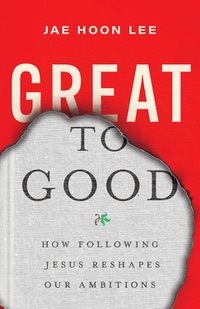
Great to Good: How Following Jesus Reshapes Our Ambitions by Jae Hoon Lee. “People tend to measure success by worldly standards. We assume that greatness comes from charisma, influence, and followers. But God cares more about our character than about what people around us think of our reputations. Pastor Jae Hoon Lee challenges us not to pursue greatness but to grow in goodness. Jesus called his followers to cultivate character of goodness, not to aspire to positions of power. The faithful Christian life is one that seeks to become good. These reflections and meditations on the good Christian life unpack what it means for the church to live in obedience and faith, to strip away ambitious self-glorification, and to instead live humble lives of goodness and love.” (Buy it at Amazon or Westminster Books)
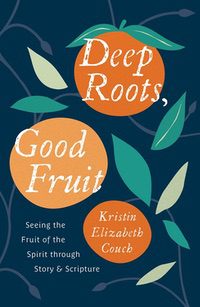
Deep Roots, Good Fruit: Seeing the Fruit of the Spirit through Story & Scripture by Kristin Elizabeth Couch. “What does the fruit of the Spirit look like in everyday life, and how can we become the people the Holy Spirit calls us to be? Author Kristin Elizabeth Couch invites you to explore the fruit of the Spirit through captivating stories of people she’s known: there’s a father who goes missing in a snowstorm; a boss who shouts like a drill sergeant; a neighbor with a refrigerator full of eggs; and Grandpa, who smells of Old Spice! By combining memorable stories with rich meditations on Scripture, Kristin encourages us to see that God is at work even in life’s mundane moments, and that although our growth may seem slow, in the Spirit’s power we really can become more like Jesus. As you reflect on the fruit of the Spirit, you will long for it more deeply, pray for it more fervently, and see afresh how the Spirit is at work in your own life and the lives of others. Put deep roots into God’s word and enjoy bearing more and more of his good fruit.” (Buy it at Amazon)
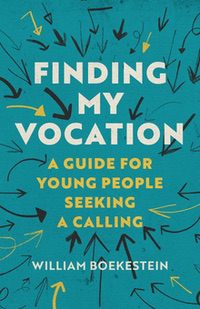
Finding My Vocation: A Guide for Young People Seeking a Calling by William Boekestein. “How can I pick the right job? Actually, you don’t need to choose a job that’s ‘perfect for you.’ But you do need to be faithful and productive in ways that honor God in your work life. Here’s a better question: As a believer, how can I determine what I am supposed to do, and then do it well? The doctrine of calling, or vocation, leads us to the answer. Because for those who are “called according to his purpose” (Rom. 8:28), God provides a place, a time, and the gifts necessary to work for him in this world. God placed us in his world to work for his glory. You might not know exactly what he has planned for you, but you must—and can—be faithful where he calls you to be.” (Buy it at Amazon or Westminster Books)

What Do I Say When…?: A Parent’s Guide to Navigating Cultural Chaos for Children and Teens by Andrew T. Walker & Christian Walker. “Navigating the world for the first time can be challenging, especially when popular cultural beliefs contradict the teachings of Scripture. So when inevitable questions arise, parents must be equipped with sound biblical answers to guide their children through the complexities of modern life—because if we fail to catechize our children, the world will surely step in to do it for us. Written by husband and wife duo Andrew and Christian Walker, this accessible and trusted guide helps busy parents quickly and effectively respond to their children’s questions on a wide range of topics, including abortion, sexuality, transgenderism, technology, political engagement, and more. Each chapter contains age-appropriate prompts for parents of children at different stages of development and maturity. Parents can refer to each chapter as specific questions arise, study hot-button topics for future reference, or access a range of conversation starters to proactively cultivate biblical truth within their child’s heart.” (Buy it at Amazon or Westminster Books)
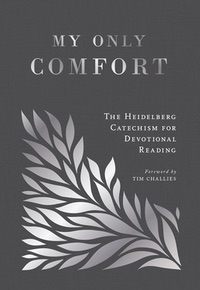
My Only Comfort: The Heidelberg Catechism for Devotional Reading. This is a slight reimagining of the Heidelberg Catechism. “The Heidelberg Catechism is poetic, pastoral, and comforting, but the Q&A format can undercut devotional reading. Bound in linen with silver foil, My Only Comfort includes a Scripture passage for each of the 52 readings.” I wrote the foreword and said, “Rather than reading as a long series of questions and answers, the Catechism now reads as a kind of poetic devotional. And it works well! I trust and I pray that this will spark a new wave of interest and help a new generation to both read and benefit from it.” (Buy it at Amazon or Westminster Books)
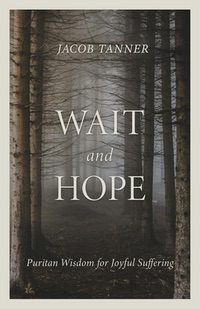
Wait and Hope: Puritan Wisdom for Joyful Suffering by Tanner Jacob. “Since the fall, suffering has been a universal part of human experience. While the specific trials we face change, we all long for hope in the face of many burdens. No group of writers in church history grasped this better than the Puritans. In Wait and Hope, Jacob Tanner reminds us how the Puritans endured immense suffering in various aspects of the Christian life– from facing persecution and death to pursuing assurance through trials. By looking at the lessons they learned, suffering pilgrims today are invited to join the tradition of waiting in hope.” (Buy it at Amazon or Westminster Books)
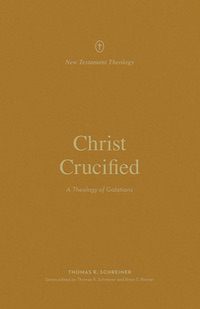
Christ Crucified: A Theology of Galatians by Thomas R. Schreiner. “In a time marked by confusion and change, the pathway to salvation for the Galatians seemed unclear. While the false teachers contended for circumcision and obedience to the law as necessary for justification before God, Paul presented the truth of the gospel and redrew the lines of salvation around the cross of Jesus Christ. In this addition to the New Testament Theology series, scholar Thomas R. Schreiner addresses the conflict between Paul and his opponents in Galatia, examines the gospel itself, and shows what it looks like to live out the truth of the gospel in the new era. After examining the dominant biblical-theological themes of Galatians, readers will be reminded of the gift of grace Christ offers through his death on the cross—the only possible path to salvation and true unity among believers.” (Buy it at Amazon or Westminster Books)
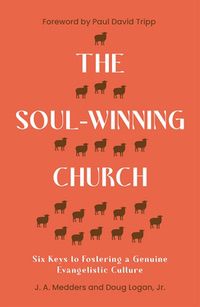
The Soul-Winning Church: Six Keys to Fostering a Genuine Evangelistic Culture by J.A. Medders & Doug Logan. “Your church’s sermons often include a call to evangelize. You’ve held evangelism training events. You give out invites to your Christmas and Easter services. So… where are all the new Christians? Is your church actually reaching the lost with the gospel? For many of us, despite having the best intentions our churches struggle to reach out with the gospel effectively. J.A. Medders and Doug Logan Jr. have decades of experience in leading churches and mentoring pastors, and here they outline six principles for cultivating a genuine evangelistic culture throughout your church. Includes case studies from a variety of different cultures and contexts to give you practical ideas for implementing these six principles. There are also free resources available, including a podcast series, that will help church leaders to implement the principles they learn in the book.” (Buy it at Amazon)

I Have My Doubts: How God Can Use Your Uncertainty to Reawaken Your Faith by Philip Graham Ryken. “Will God do what he says he promises? Can we trust his intentions? Is he even good? Without guidance, these doubt-filled questions can hinder spiritual progress and lead to discouragement. Thankfully, the Bible offers encouraging examples of men and women who remained faithful to God even through seasons of uncertainty. Based on a series of Wheaton College chapel messages, this encouraging guide explores 10 Bible stories on the topic of faith and doubt to reassure readers that doubt is normal for Christians. These stories cover a wide range of questions and doubts that most Christians experience at some point in their faith journey—doubts about God’s power, protection, justice, healing, and more. Ultimately, readers will better understand the dynamic of faith and doubt, helping them renew their faith in God even through times of uncertainty.” (Buy it at Amazon or Westminster Books)
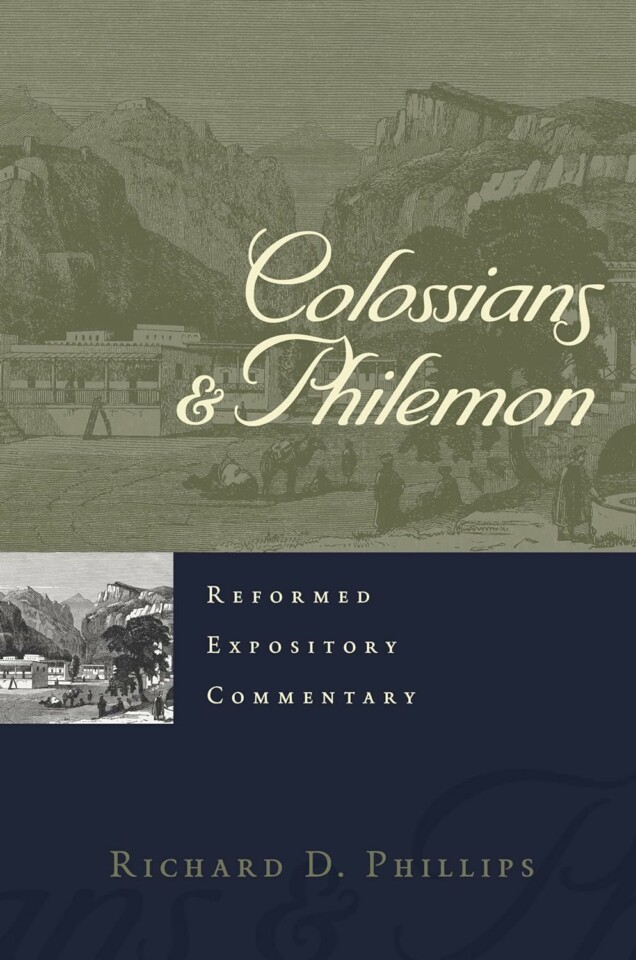
Colossians & Philemon (Reformed Expository Commentaries) by Richard D. Phillips. This volumes continues and extends the Reformed Expository Commentaries series which is sermon-based and ideal for use by preachers or general readers alike. “Caught between Jewish legalism and pagan mystery religions—and evidently attracted to both—the young church in Colossae was struggling. The apostle Paul’s urgent letter to the congregation presents a singularly potent Christology as the cure for their confusion. In a companion letter to Philemon, a member of the church, Paul shows that embracing right doctrine leads to right relationships. Richard D. Phillips’s devotional, pastoral commentary on these two letters presents a compelling view of apostolic apologetics and connects the false teaching of the past to the teaching and beliefs that surround believers on all sides today.” (Buy it at Amazon or Westminster Books)
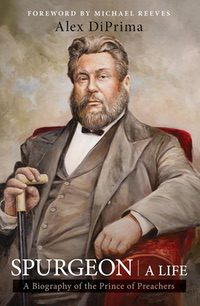
Charles Spurgeon: A Life by Alex DiPrima. “Alex DiPrima paints a fresh portrait of Charles Haddon Spurgeon, the most well-known gospel minister of the nineteenth century. By providing social, historical, and religious context, DiPrima helps us comprehend the scope of Spurgeon’s ministry in London. Combining academic expertise with popular presentation, this short biography of the famed Prince of Preachers will be the go-to introduction to Spurgeon for years to come.” (Buy it at Amazon or Westminster Books)
]]> A La Carte: John Piper on coffee-sipping in the sanctuary / Aging peacefully / How "evangelical" are Iowa's evangelicals? / The danger of rejecting a good conscience / Is our view of Satan too small? / Show up for what God has for you / and more.
]]>
A La Carte: John Piper on coffee-sipping in the sanctuary / Aging peacefully / How "evangelical" are Iowa's evangelicals? / The danger of rejecting a good conscience / Is our view of Satan too small? / Show up for what God has for you / and more.
]]>
Good morning. Grace and peace to you.
(Yesterday on the blog: Life Without Romans 8:28)
On Coffee-Sipping in the Sanctuary
I guess John Piper recently caused a bit of a brouhaha when he tweeted about sipping coffee in the church sanctuary. Here he explains what he meant and why he sees coffee as a relatively inconsequential symptom of something bigger. “Let me try to get right to the heart of the matter. The heart of the matter is not coffee in the sanctuary. That’s only a symptom, and there are lots of other symptoms of what I’m concerned about.”
Aging Peacefully
I think a lot of people will identify with Melissa’s thoughts about aging peacefully. “Here, in the middle of a department store, my eyes filled with tears, and I was embarrassed. Embarrassed that I cared so much that I’m never going to wear a dress like that again in my life. I was embarrassed that I haven’t transcended these ideas of what it is to be a woman, that I haven’t devoted more of my mind and my heart to purely spiritual endeavors instead of physical ones.”
How ‘Evangelical’ Are Iowa’s Evangelicals?
I’m glad Thomas Kidd asks and answers this question at the WSJ. (I used a link that should unlock the article for you.) Essentially, he means to show how the media uses “evangelical” as a political term rather than a Christian one.
The Danger of Rejecting a Good Conscience
“All of us have a conscience, but the problem is that we have a conscience while living in a fallen world where sin has affected all that we are—including the conscience we possess.” Mitch Chase goes on to explain how dangerous it is to reject a good conscience.
Show Up for What God Has for You
I appreciate the point Rebekah makes here—that God works through us if we make the commitment to show up. That’s true of a lot of areas of life!
Is Our View of Satan Too Small?
Peter Mead: “I have noticed something strange. Many Christians will acknowledge the existence and the general agenda of Satan. They will affirm that he is alive and active on planet Earth. Yes, they recognize that he hates God and God’s people. Yes, he hates truth and wants to steal, kill and destroy. … And yet, oddly, as quickly as those affirmations are made, that awareness seems to evaporate just as quickly.”
Flashback: Aging Gracefully
Every day, we are all building the house we will live in when old age comes. Some of us are building a beautiful palace. Some are building a dark prison. What are you building?
]]> I have often heard it said that Romans 8:28 is the wrong verse to bring to the attention of those who are grieving, that while it is true in our especially difficult moments, it does not necessarily become helpful until some time has passed. And while I can only speak for myself, it has been my experience that in my lowest moments I have feasted on Romans 8:28, I have run to it like a starving man runs to a meal and I have drunk from it like a parched man drinks from an oasis. I have needed Romans 8:28 and it has both comforted my soul and directed my grief. The verse says, “And we know that for those who love God all things work together for good, for those who are called according to his purpose.” It is for good reason that this is one of the most familiar verses in the entire Bible and for good reason that so many have memorized it. And I wonder if you have ever paused to consider a world without Romans 8:28? Without Romans 8:28 we would not have confidence that our experiences in this world “work … for good.” We might believe that some of what we experience works for harm, that Satan and God are cosmically slugging it out with first one and then the other gaining the upper hand. We might be tempted to believe that some of what we experience works for nothing, that there is an arbitrary element to life in…]]>
I have often heard it said that Romans 8:28 is the wrong verse to bring to the attention of those who are grieving, that while it is true in our especially difficult moments, it does not necessarily become helpful until some time has passed. And while I can only speak for myself, it has been my experience that in my lowest moments I have feasted on Romans 8:28, I have run to it like a starving man runs to a meal and I have drunk from it like a parched man drinks from an oasis. I have needed Romans 8:28 and it has both comforted my soul and directed my grief. The verse says, “And we know that for those who love God all things work together for good, for those who are called according to his purpose.” It is for good reason that this is one of the most familiar verses in the entire Bible and for good reason that so many have memorized it. And I wonder if you have ever paused to consider a world without Romans 8:28? Without Romans 8:28 we would not have confidence that our experiences in this world “work … for good.” We might believe that some of what we experience works for harm, that Satan and God are cosmically slugging it out with first one and then the other gaining the upper hand. We might be tempted to believe that some of what we experience works for nothing, that there is an arbitrary element to life in…]]>
I have often heard it said that Romans 8:28 is the wrong verse to bring to the attention of those who are grieving, that while it is true in our especially difficult moments, it does not necessarily become helpful until some time has passed. And while I can only speak for myself, it has been my experience that in my lowest moments I have feasted on Romans 8:28, I have run to it like a starving man runs to a meal and I have drunk from it like a parched man drinks from an oasis. I have needed Romans 8:28 and it has both comforted my soul and directed my grief.
The verse says, “And we know that for those who love God all things work together for good, for those who are called according to his purpose.” It is for good reason that this is one of the most familiar verses in the entire Bible and for good reason that so many have memorized it. And I wonder if you have ever paused to consider a world without Romans 8:28?
Without Romans 8:28 we would not have confidence that our experiences in this world “work … for good.” We might believe that some of what we experience works for harm, that Satan and God are cosmically slugging it out with first one and then the other gaining the upper hand. We might be tempted to believe that some of what we experience works for nothing, that there is an arbitrary element to life in which things happen that have no purpose, no meaning, and no redemption. We might gaze at our sorrows and sufferings and think, “There is no goodness in this and no way goodness could ever come from this.”
Without Romans 8:28 we would not have confidence that “all” things work for good. We might believe that some of the things we experience ultimately work for good while others ultimately work for our harm. Or we might believe that some things work for good while other things are empty and meaningless, black holes in God’s providence.
Without Romans 8:28 we might not see the hand of God working in our suffering, for where things “work together for good,” there must be someone who is working them. Work requires a worker! We might assume, as do so many today, that an impersonal force like the universe is ultimately behind our circumstances. We might even assume that there is no deity and no intelligent being who acts out his providence within this universe, but just cold impersonal fate.
Without Romans 8:28 we might neglect to meditate on the fact that our purpose in this world is to serve God’s purpose—that we have been “called according to his purpose.” We might fail to ponder the truth that if we are called to experience trials it is because God has purposes to accomplish through them and that we can bring glory to him if we meet these trials and pass through them with our faith strong and intact.
Without Romans 8:28 our suffering would be intolerable and we might rightly conclude that our sorrows are meaningless.
But we do have Romans 8:28. God has given it to us a gift of his grace. Of course, we need to exercise good judgment when we bring comfort to God’s people as they suffer. Of course, we need to choose the truth that fits the circumstance. Of course, we need to ensure we are not forcing a harsh or inaccurate interpretation of the passage as so many have done with this verse. But as for me, there are few verses more comforting and more encouraging than this one.
Because Romans 8:28 exists, those who love God and are loved by him can have confidence that he is working through all of life’s circumstances to bring good out of bad, light out of darkness, joy out of sorrow. It’s not that God is especially agile, a kind of cosmic PR man adept at manipulating circumstances, but rather that he is the Planner, the Engineer, the Designer who has ordained the means just as much as the end. He ordains the calm and the storm, the darkness and the dawn, the famine and the feast. This being the case, no event is meaningless, no situation purposeless, no condition ultimately hopeless. God is working out his good will not despite dark days, difficult trials, and broken hearts, but through them. Such circumstances are the raw material he uses to form and shape his good plans, his perfect purposes.
God’s specialty is not bringing good from good, but good from bad and Romans 8:28 gently tells me that if I trust him through my tears, he will give me reason to laugh; if I trust him through my pain, he will teach me to praise; if I trust him through my grief, he will afterwards show me all the good that came with it and through it. He will show me the precious flowers in the dry desert, the beautiful blooms against the sharp thorns, the gentle petals beneath the vicious skies. For behind every black cloud is a yellow sun, behind every dark night a bright day, behind every frowning providence a smiling face—the smiling face of the God who works all things for good for those who love him and are called according to his purpose.1
- The final two paragraphs are adapted from Seasons of Sorrow. ↩︎
 I wanted to let you know that the deal Logos offered after my recent webinar (25% off new or upgraded base packages) has been extended until November 16. Also, they’ve just released their third batch of Weekly Cyber Deals. You’ll also find some new Kindle deals today if that’s your thing. (Yesterday on the blog: One Unexpected Key To a Joyful Marriage) What Does Romans 8:28 Mean? Romans 8:28 is an especially important and comforting text. It’s important, though, to know what it does and does not mean. The Gospel According to Envy: How Jealousy Corrupts Ministry “Envy exists because inequality exists. We live in a world made by a glorious Father who has sprinkled his glory all over creation and imbued human souls with a special portion of this glory. Because of sin, the people he has made are cracked mirrors, walking around in T-shirts and jeans, but we are still made in his image and so possess trace amounts of his glory.” When A Prisoner Becomes A Preacher: Sample A Free Chapter From ’27 Summers’ As a teenager Ronald Olivier ran wild in the streets of New Orleans, selling drugs, stealing cars, and finally killing someone on what was supposed to be the happiest day of the year–Christmas Day. Facing the consequences of his crime, he remembered what his mother once said. “Baby, if you ever have real trouble, the kind that I can’t get you out of, you can always call on Jesus.” So he did. Sample a free chapter today for a limited time…]]>
I wanted to let you know that the deal Logos offered after my recent webinar (25% off new or upgraded base packages) has been extended until November 16. Also, they’ve just released their third batch of Weekly Cyber Deals. You’ll also find some new Kindle deals today if that’s your thing. (Yesterday on the blog: One Unexpected Key To a Joyful Marriage) What Does Romans 8:28 Mean? Romans 8:28 is an especially important and comforting text. It’s important, though, to know what it does and does not mean. The Gospel According to Envy: How Jealousy Corrupts Ministry “Envy exists because inequality exists. We live in a world made by a glorious Father who has sprinkled his glory all over creation and imbued human souls with a special portion of this glory. Because of sin, the people he has made are cracked mirrors, walking around in T-shirts and jeans, but we are still made in his image and so possess trace amounts of his glory.” When A Prisoner Becomes A Preacher: Sample A Free Chapter From ’27 Summers’ As a teenager Ronald Olivier ran wild in the streets of New Orleans, selling drugs, stealing cars, and finally killing someone on what was supposed to be the happiest day of the year–Christmas Day. Facing the consequences of his crime, he remembered what his mother once said. “Baby, if you ever have real trouble, the kind that I can’t get you out of, you can always call on Jesus.” So he did. Sample a free chapter today for a limited time…]]>
I wanted to let you know that the deal Logos offered after my recent webinar (25% off new or upgraded base packages) has been extended until November 16. Also, they’ve just released their third batch of Weekly Cyber Deals.
You’ll also find some new Kindle deals today if that’s your thing.
(Yesterday on the blog: One Unexpected Key To a Joyful Marriage)
What Does Romans 8:28 Mean?
Romans 8:28 is an especially important and comforting text. It’s important, though, to know what it does and does not mean.
The Gospel According to Envy: How Jealousy Corrupts Ministry
“Envy exists because inequality exists. We live in a world made by a glorious Father who has sprinkled his glory all over creation and imbued human souls with a special portion of this glory. Because of sin, the people he has made are cracked mirrors, walking around in T-shirts and jeans, but we are still made in his image and so possess trace amounts of his glory.”
When A Prisoner Becomes A Preacher: Sample A Free Chapter From ’27 Summers’
As a teenager Ronald Olivier ran wild in the streets of New Orleans, selling drugs, stealing cars, and finally killing someone on what was supposed to be the happiest day of the year–Christmas Day. Facing the consequences of his crime, he remembered what his mother once said. “Baby, if you ever have real trouble, the kind that I can’t get you out of, you can always call on Jesus.” So he did. Sample a free chapter today for a limited time at 27SummersBook.com. (Sponsored Link)
A World Without Babies
This article is not written by or for Christians, but still applies to us. It questions why so many nations are seeing their birthrates plummet and considers what the world may look like unless the trend reverses itself.
How to Prepare a Sermon: From Complexity to Clarity
“Many new preachers put in so much hard work to interpret the text that they are tempted to shortchange the sermon writing stage, leaving their sermons unclear and unfocused. Determining what to say and determining how to say it aren’t the same thing.2 Therefore, once you have put in the hard work to determine what is the main idea of the text, then you must continue the hard work of determining how to say the main idea in a clear and focused manner.”
Footsteps Left
Andrea found herself thinking about footsteps—those left by others and the ones she herself will leave behind.
The Body of Jesus Was Eaten by Dogs?
“When you encounter unbelievers, often you’ll find with a bit of digging that they really have no idea what they’re talking about when it comes to Christianity and the Bible. They read a novel like the Da Vinci Code and suddenly they believe themselves to be experts in the Bible and “the true history” of Christianity. They watch a few YouTube videos from viral skeptics and they’re specialists in everything wrong with the Christian faith.”
Flashback: Does Nick Send Me Signs?
I understand the impulse to look for a sign and I understand the comfort that can come when we believe we have received one…It is natural, then, to hope for some kind of information, to seek some kind of a sign, to know that they are okay.
]]> There are few things more sobering than praying for someone who is dying, and few things more humbling than praying with someone whose time on earth is drawing to a close. In his book Facing the Last Enemy, Guy Prentiss Waters offers wise counsel to those who have the responsibility and even the privilege of this task. Here is his simple guidance on praying for those who are dying. First, we should pray that the person would have a sure and settled faith in Jesus Christ. About a month before he died, an ailing John Calvin told fellow ministers who were visiting him that “my faults have always displeased me and the root of the fear of the Lord has always been in my heart.” Calvin was well acquainted with his sins. For that reason, he took refuge in the Lord, trusting and fearing Him from the heart. We should pray that our dying friend or loved one would, by God’s grace, make the same kind of confession. Second, we should pray that the person would submit himself to the will of God. If it is evident in God’s providence that his time on this earth is limited, then the best thing to do is to bow before God. We should also pray for ourselves that we would submit to this hard providence. We may pray this prayer for the dying person and for ourselves in confidence that God is working only for His glory and the good of His people in this world (Rom.…]]>
There are few things more sobering than praying for someone who is dying, and few things more humbling than praying with someone whose time on earth is drawing to a close. In his book Facing the Last Enemy, Guy Prentiss Waters offers wise counsel to those who have the responsibility and even the privilege of this task. Here is his simple guidance on praying for those who are dying. First, we should pray that the person would have a sure and settled faith in Jesus Christ. About a month before he died, an ailing John Calvin told fellow ministers who were visiting him that “my faults have always displeased me and the root of the fear of the Lord has always been in my heart.” Calvin was well acquainted with his sins. For that reason, he took refuge in the Lord, trusting and fearing Him from the heart. We should pray that our dying friend or loved one would, by God’s grace, make the same kind of confession. Second, we should pray that the person would submit himself to the will of God. If it is evident in God’s providence that his time on this earth is limited, then the best thing to do is to bow before God. We should also pray for ourselves that we would submit to this hard providence. We may pray this prayer for the dying person and for ourselves in confidence that God is working only for His glory and the good of His people in this world (Rom.…]]>
There are few things more sobering than praying for someone who is dying, and few things more humbling than praying with someone whose time on earth is drawing to a close. In his book Facing the Last Enemy, Guy Prentiss Waters offers wise counsel to those who have the responsibility and even the privilege of this task. Here is his simple guidance on praying for those who are dying.
]]>First, we should pray that the person would have a sure and settled faith in Jesus Christ. About a month before he died, an ailing John Calvin told fellow ministers who were visiting him that “my faults have always displeased me and the root of the fear of the Lord has always been in my heart.” Calvin was well acquainted with his sins. For that reason, he took refuge in the Lord, trusting and fearing Him from the heart. We should pray that our dying friend or loved one would, by God’s grace, make the same kind of confession.
Second, we should pray that the person would submit himself to the will of God. If it is evident in God’s providence that his time on this earth is limited, then the best thing to do is to bow before God. We should also pray for ourselves that we would submit to this hard providence. We may pray this prayer for the dying person and for ourselves in confidence that God is working only for His glory and the good of His people in this world (Rom. 8:28). We trust God even when we do not fully understand what He is doing in our lives.
Third, we should pray that our dying loved one would have comfort of body and soul. We do not want him to linger in physical pain. It is not necessarily wrong to pray that the Lord would take a dying believer home to Him soon. We also do not want the person to experience distress of soul. We should pray that he would experience the “peace of God, which surpasses all understanding” and “guards” “hearts” and “minds in Christ Jesus” (Phil. 4:7).
Finally, we should pray that God would provide for the family and friends whom the dying person will leave behind. Pray that He would fulfill His promise to watch over the widow and the orphan (Deut. 10:18; Ps. 68:5). Pray that He would spiritually provide for the survivors as they grieve their loss, that their grief may be in the hope of the gospel.
 I have been making my way through the works of F.B. Meyer and came across a passage I found both intriguing and encouraging. Though I found it in one of his weaker books, I consider it one of his stronger excerpts. Meyer is discussing the wonderful truths of Romans 8:28, that God is working all things for good. The purpose in his words is to assure Christians that God is working all things for good, even in times of relative stillness. However stationary the stars appear to be in the blue heavens, we know that they are really sailing onward, with great velocity, in their destined courses. The ocean may seem to sleep at our feet, but in reality it is in a state of incessant activity; its tides and currents perpetually passing to and fro on their appointed ministries. There is not a silent nook within the deepest forest glade, which is not the scene of marvellous activity, though detected only by the educated sense of the naturalist. So there are times when our lives lack variety and incident. The stream creeps sluggishly through the level plain. Monotony, common-place, dull routine, characterize our daily course. We are disposed to think that we are making no progress; learning no fresh lessons; standing still as the sun over Gibeon; or going back as the shadow on the dial of Ahaz. The child gets impatient, because every day it has to play the same scales. Then love steps in, and sees that God is busily at work,…]]>
I have been making my way through the works of F.B. Meyer and came across a passage I found both intriguing and encouraging. Though I found it in one of his weaker books, I consider it one of his stronger excerpts. Meyer is discussing the wonderful truths of Romans 8:28, that God is working all things for good. The purpose in his words is to assure Christians that God is working all things for good, even in times of relative stillness. However stationary the stars appear to be in the blue heavens, we know that they are really sailing onward, with great velocity, in their destined courses. The ocean may seem to sleep at our feet, but in reality it is in a state of incessant activity; its tides and currents perpetually passing to and fro on their appointed ministries. There is not a silent nook within the deepest forest glade, which is not the scene of marvellous activity, though detected only by the educated sense of the naturalist. So there are times when our lives lack variety and incident. The stream creeps sluggishly through the level plain. Monotony, common-place, dull routine, characterize our daily course. We are disposed to think that we are making no progress; learning no fresh lessons; standing still as the sun over Gibeon; or going back as the shadow on the dial of Ahaz. The child gets impatient, because every day it has to play the same scales. Then love steps in, and sees that God is busily at work,…]]>
I have been making my way through the works of F.B. Meyer and came across a passage I found both intriguing and encouraging. Though I found it in one of his weaker books, I consider it one of his stronger excerpts. Meyer is discussing the wonderful truths of Romans 8:28, that God is working all things for good. The purpose in his words is to assure Christians that God is working all things for good, even in times of relative stillness.
]]>However stationary the stars appear to be in the blue heavens, we know that they are really sailing onward, with great velocity, in their destined courses. The ocean may seem to sleep at our feet, but in reality it is in a state of incessant activity; its tides and currents perpetually passing to and fro on their appointed ministries. There is not a silent nook within the deepest forest glade, which is not the scene of marvellous activity, though detected only by the educated sense of the naturalist.
So there are times when our lives lack variety and incident. The stream creeps sluggishly through the level plain. Monotony, common-place, dull routine, characterize our daily course. We are disposed to think that we are making no progress; learning no fresh lessons; standing still as the sun over Gibeon; or going back as the shadow on the dial of Ahaz.
The child gets impatient, because every day it has to play the same scales. Then love steps in, and sees that God is busily at work, maturing His designs, and leading the life forward, though insensibly, into regions of experience, which surpass all thought. The day is breaking; the ice is giving; the picture is advancing; things are moving. God is working all things after the counsel of His own will.
 There are few promises in the Bible sweeter than this: “We know that for those who love God all things work together for good, for those who are called according to his purpose” (Romans 8:28). This is a promise of great blessing, but it is not a promise that extends to all humanity. Rather, it comes with conditions. All things work together for good to those who a) love God and b) are called according to his purpose. So what of those who do not love God and are not called according to his purpose? We must expect that for these, all things will not work together for good; in fact, all things will ultimately work together for their harm. In his book All Things for Good (also known as A Divine Cordial) Thomas Watson focuses on God’s great blessing of worship—the God of all the universe allows and invites mere human beings to worship him!—to show how even something so good will work to the harm of those who neither know nor love God. All Things for Harm The ministers of God work for the hurt of those who do not love God. God’s faithful preachers summon people to repent in Christ and believe for the forgiveness of their sins. God’s people respond in repentance and faith. But “the same wind that blows one ship to the haven, blows another ship upon a rock. The same breath in the ministry that blows a godly man to heaven, blows a profane sinner to hell.” Those…]]>
There are few promises in the Bible sweeter than this: “We know that for those who love God all things work together for good, for those who are called according to his purpose” (Romans 8:28). This is a promise of great blessing, but it is not a promise that extends to all humanity. Rather, it comes with conditions. All things work together for good to those who a) love God and b) are called according to his purpose. So what of those who do not love God and are not called according to his purpose? We must expect that for these, all things will not work together for good; in fact, all things will ultimately work together for their harm. In his book All Things for Good (also known as A Divine Cordial) Thomas Watson focuses on God’s great blessing of worship—the God of all the universe allows and invites mere human beings to worship him!—to show how even something so good will work to the harm of those who neither know nor love God. All Things for Harm The ministers of God work for the hurt of those who do not love God. God’s faithful preachers summon people to repent in Christ and believe for the forgiveness of their sins. God’s people respond in repentance and faith. But “the same wind that blows one ship to the haven, blows another ship upon a rock. The same breath in the ministry that blows a godly man to heaven, blows a profane sinner to hell.” Those…]]>
There are few promises in the Bible sweeter than this: “We know that for those who love God all things work together for good, for those who are called according to his purpose” (Romans 8:28). This is a promise of great blessing, but it is not a promise that extends to all humanity. Rather, it comes with conditions. All things work together for good to those who a) love God and b) are called according to his purpose. So what of those who do not love God and are not called according to his purpose? We must expect that for these, all things will not work together for good; in fact, all things will ultimately work together for their harm.
In his book All Things for Good (also known as A Divine Cordial) Thomas Watson focuses on God’s great blessing of worship—the God of all the universe allows and invites mere human beings to worship him!—to show how even something so good will work to the harm of those who neither know nor love God.
All Things for Harm
The ministers of God work for the hurt of those who do not love God. God’s faithful preachers summon people to repent in Christ and believe for the forgiveness of their sins. God’s people respond in repentance and faith. But “the same wind that blows one ship to the haven, blows another ship upon a rock. The same breath in the ministry that blows a godly man to heaven, blows a profane sinner to hell.” Those who reject God further their condemnation by refusing to heed the call of the gospel. For these, “the word preached is not healing, but hardening. And how dreadful is this for men to be sunk to hell with sermons!”
Prayer works for the hurt of those who do not love God. What a privilege it is for Christians to be able to speak to God, knowing that he loves to hear his people and answer their prayers. But what an abomination it is when those who hate God petition him as if they are his children. The unbeliever sins by his prayerlessness, for all men should cry out to God, but he also sins through his prayers, for he rejects the true and holy God and prays to a God of his imagination. He petitions God even though he will not submit to God. “The sacrifice of the wicked is an abomination to the LORD,” and so too the prayer of the wicked (Proverbs 15:8). “It were a sad judgment if all the food a man did eat should turn to ill humours, and breed diseases in the body: so it is with a wicked man. That prayer which should do him good, works for his hurt; he prays against sin, and sins against his prayer.”
The Lord’s Supper works for the hurt of those who do not love God. The Bible contains the most serious and sober warnings for those who participate in the Lord’s Supper but do not love the Lord of the supper. Where Christians eat and drink life and grace, unbelievers eat and drink divine judgment and wrath upon themselves (1 Corinthians 11:29). “Some professors kept their idol-feasts, yet would come to the Lord’s table. Profane persons feast with their sins; yet will come to feast at the Lord’s table. This is to provoke God.” In this way the Lord’s Supper, which is so good and so important to God’s people, harms those who are not God’s people.
Christ works for the hurt of those who do not love God. Even Christ, who is so good and so wonderful, works for hurt to those who sin against him, for he is “a stone of stumbling, and a rock of offense” (1 Peter 2:8). This reflects no fault in him, but great fault in the hearts of those who reject him “for instead of believing in Him, they are offended at Him. The sun, though in its own nature pure and pleasant, yet it is hurtful to sore eyes.” Says Watson, “sinners stumble at a Saviour, and pluck death from the tree of life. As [medications heal] some patients, but destroy others; so the blood of Christ, though to some it is medicine, to others it is condemnation. Here is the unparalleled misery of such as live and die in sin. The best things work for their hurt; cordials themselves, kill.”
Next Week
If you are reading All Things for Good with me, please finish up the book for next week (from chapter 6 to chapter 9—I told you we’d be reading at a brisk pace!). In the meantime, why don’t you drop by Facebook and provide some of your thoughts on this week’s reading. I’ll see you there!
]]> There are two things I’d like to communicate in this brief blog post. The first is a request and the second is an invitation. First, the request: Encourage me. I’d love it if you’d consider submitting the answer to a question and I’ll then round up some of the answers and share them next week. So here goes. God promises to work all things for the good of those who love him and are called according to his purpose. This includes even, and perhaps especially, the difficult things. What are some of the surprising ways you have witnessed or experienced God’s goodness in this difficult time? Fill in this form and check back early next week to read a selection of them. Loading… Second, the invitation: Read with me. I’d like to be encouraged together by reading a book on this very topic—God’s goodness in difficult times. Thomas Watson’s All Things for Good (aka A Divine Cordial) is an exposition of Romans 8:28 and seems a fitting book to read right now. So why don’t we read it together? Here’s how Banner of Truth describes it: Thomas Watson’s book All Things For Good provides the biblical answer to the contemporary question; Why do bad things happen to good people? Thomas Watson, the 17th century minister of St. Stephen’s Walbrook, believed he faced two great difficulties in his pastoral ministry. The first was making the unbeliever sad, in the recognition of his need of God’s grace. The second was making the believer joyful in response to…]]>
There are two things I’d like to communicate in this brief blog post. The first is a request and the second is an invitation. First, the request: Encourage me. I’d love it if you’d consider submitting the answer to a question and I’ll then round up some of the answers and share them next week. So here goes. God promises to work all things for the good of those who love him and are called according to his purpose. This includes even, and perhaps especially, the difficult things. What are some of the surprising ways you have witnessed or experienced God’s goodness in this difficult time? Fill in this form and check back early next week to read a selection of them. Loading… Second, the invitation: Read with me. I’d like to be encouraged together by reading a book on this very topic—God’s goodness in difficult times. Thomas Watson’s All Things for Good (aka A Divine Cordial) is an exposition of Romans 8:28 and seems a fitting book to read right now. So why don’t we read it together? Here’s how Banner of Truth describes it: Thomas Watson’s book All Things For Good provides the biblical answer to the contemporary question; Why do bad things happen to good people? Thomas Watson, the 17th century minister of St. Stephen’s Walbrook, believed he faced two great difficulties in his pastoral ministry. The first was making the unbeliever sad, in the recognition of his need of God’s grace. The second was making the believer joyful in response to…]]>
There are two things I’d like to communicate in this brief blog post. The first is a request and the second is an invitation.
First, the request: Encourage me. I’d love it if you’d consider submitting the answer to a question and I’ll then round up some of the answers and share them next week. So here goes.
God promises to work all things for the good of those who love him and are called according to his purpose. This includes even, and perhaps especially, the difficult things. What are some of the surprising ways you have witnessed or experienced God’s goodness in this difficult time?
Fill in this form and check back early next week to read a selection of them.
Second, the invitation: Read with me. I’d like to be encouraged together by reading a book on this very topic—God’s goodness in difficult times. Thomas Watson’s All Things for Good (aka A Divine Cordial) is an exposition of Romans 8:28 and seems a fitting book to read right now. So why don’t we read it together? Here’s how Banner of Truth describes it:
Thomas Watson’s book All Things For Good provides the biblical answer to the contemporary question; Why do bad things happen to good people?
Thomas Watson, the 17th century minister of St. Stephen’s Walbrook, believed he faced two great difficulties in his pastoral ministry. The first was making the unbeliever sad, in the recognition of his need of God’s grace. The second was making the believer joyful in response to God’s grace. He believed the answer to the second difficulty could be found in Paul’s teaching in Romans 8.28: God works all things together for good for his people.
Thomas Watson’s exposition is always simple, illuminating and rich in practical application. He explains that both the best and the worst experiences work for the good of God’s people. He carefully analyses what it means to be someone who ‘loves God’ and is ‘called according to his purpose’.
If you’ve never read Puritan writing before, I think you’ll find Watson surprisingly accessible and extremely relevant. This book is also relatively short, so shouldn’t prove burdensome.
Let’s read All Things for Good together and do so at a pretty good clip. Why don’t you track down a copy and read the introduction and first two sections (“The Best Things Work for Good to the Godly” and “The Worst Things Work for Good to the Godly”) by Tuesday, April 28. On that day I’ll offer a few reflections and assign a couple more chapters. We’ll continue that way until the book is done.
The book is widely available, though obviously there are shipping constraints now, so you may find electronic versions easiest to access. Do note that some of the electronic versions, especially the free Kindle versions, may be very poorly formatted. The Kindle version I’ve linked to should be done well and is all of $1.50.
- Kindle version at Amazon
- Paperback version from Westminster Books or Banner of Truth or Reformation Heritage Books
- Free PDF version at Monergism
- Free HTML version from Eternal Life Ministries
 I said yesterday that despite the urgency of the epidemic, I am trying to find articles on other subjects. That was especially difficult to for today, but I did find at least a few. Then I’ve also provided some top articles on COVID-19 from Christian and nonChristian sources. Today’s Kindle deals include a few more good picks. Here’s a reminder that my book and documentary series Epic: An Around-the-World Journey Through Christian History releases in a couple of weeks. Please do consider pre-ordering it from Westminster Books who is offering it at a great price. (Yesterday on the blog: Preparation Is Not Panic and Confusion is Not Chaos) 10 Ways in which this Coronavirus Pandemic Can Be for Our Good Brian Najapfour writes about some of the ways that this pandemic can be for our good (just as God promises in Romans 8:28). (See also 10 Gifts I Pray God Gives The Church Through The Coronavirus, The Prosperity Gospel in a Time of Plague, and About Those Viral Graphs.) Why Covid-19 Is Worse Than the Flu, in One Chart We really need to stop making too-simple comparisons between this virus and the flu. Here’s why. (See also How Soap Kills the Coronavirus) Worth A Lot of Sparrows Jim Elliff: “What a person is worth is no small matter. We live in a culture addicted to self-esteem. We are always wanting to know what we are worth. If everybody despises me, then I feel a certain right to be depressed. Living as a valueless individual sends…]]>
I said yesterday that despite the urgency of the epidemic, I am trying to find articles on other subjects. That was especially difficult to for today, but I did find at least a few. Then I’ve also provided some top articles on COVID-19 from Christian and nonChristian sources. Today’s Kindle deals include a few more good picks. Here’s a reminder that my book and documentary series Epic: An Around-the-World Journey Through Christian History releases in a couple of weeks. Please do consider pre-ordering it from Westminster Books who is offering it at a great price. (Yesterday on the blog: Preparation Is Not Panic and Confusion is Not Chaos) 10 Ways in which this Coronavirus Pandemic Can Be for Our Good Brian Najapfour writes about some of the ways that this pandemic can be for our good (just as God promises in Romans 8:28). (See also 10 Gifts I Pray God Gives The Church Through The Coronavirus, The Prosperity Gospel in a Time of Plague, and About Those Viral Graphs.) Why Covid-19 Is Worse Than the Flu, in One Chart We really need to stop making too-simple comparisons between this virus and the flu. Here’s why. (See also How Soap Kills the Coronavirus) Worth A Lot of Sparrows Jim Elliff: “What a person is worth is no small matter. We live in a culture addicted to self-esteem. We are always wanting to know what we are worth. If everybody despises me, then I feel a certain right to be depressed. Living as a valueless individual sends…]]>
I said yesterday that despite the urgency of the epidemic, I am trying to find articles on other subjects. That was especially difficult to for today, but I did find at least a few. Then I’ve also provided some top articles on COVID-19 from Christian and nonChristian sources.
Today’s Kindle deals include a few more good picks.
Here’s a reminder that my book and documentary series Epic: An Around-the-World Journey Through Christian History releases in a couple of weeks. Please do consider pre-ordering it from Westminster Books who is offering it at a great price.
(Yesterday on the blog: Preparation Is Not Panic and Confusion is Not Chaos)
10 Ways in which this Coronavirus Pandemic Can Be for Our Good
Brian Najapfour writes about some of the ways that this pandemic can be for our good (just as God promises in Romans 8:28). (See also 10 Gifts I Pray God Gives The Church Through The Coronavirus, The Prosperity Gospel in a Time of Plague, and About Those Viral Graphs.)
Why Covid-19 Is Worse Than the Flu, in One Chart
We really need to stop making too-simple comparisons between this virus and the flu. Here’s why. (See also How Soap Kills the Coronavirus)
Worth A Lot of Sparrows
Jim Elliff: “What a person is worth is no small matter. We live in a culture addicted to self-esteem. We are always wanting to know what we are worth. If everybody despises me, then I feel a certain right to be depressed. Living as a valueless individual sends some people over the bridge or to the institution.”
Guides for Kids and Middle-Schoolers to Take Notes During the Sermon
Here are some guides for your kids as they listen to sermons (at home for now, in many cases).
The Kettle War
Until now, I had never heard of The Kettle War. “The Kettle War of 1784 was a quintessential David versus Goliath story. A formidable naval fleet of the Holy Roman Empire faces a lone battleship, underpowered and hopelessly outnumbered, yet comes back defeated. In the short battle, lasting less than a day, only a single shot was fired, and the only casualty was a soup kettle.”
‘I Long to See You’ – the Glory of Contingency
“I have been thinking about the place of contingency in Christian ministry, and the strategic weight that the Lord himself appears to place upon it. Thinking biblically and pastorally about contingency might help in some way to assuage the pain and anguish of those who wrestle with the disruption that churches will inevitably face.”
Who Owns America’s Gas Stations? (Video)
CNBC explains how it all works.
Flashback: It Takes a Church To Raise Your Child
It takes a church to raise a child because it is in the church that our children find a whole community of adults who love them, who have a deep concern for them, and who are eager to see them come to faith and grow in godly character.
]]> For the past few weeks, apostasy has been a trending topic among Christians. Though the discussion has been spurred by the sad news of some well-known men revoking their Christian faith, the discussion is bringing about the positive effect of engaging a crucial but neglected subject. (Apostasy refers to people falling away from previously held Christian beliefs.) Much of this happened when I was on vacation and deliberately taking some time away from writing. This removed my opportunity to offer a hot take—something I’m actually thankful for—so perhaps we ought to consider this my cold take. I know much has already been said and said well, but as I’ve caught up with the many articles and podcasts, I think there are a few missing elements that would be helpful to discuss. The first thing we ought to consider is that apostates are self-deceived. Years before a man or woman apostatizes, he or she would probably be shocked to hear what their future holds. This is to say, while there are always some “wolves in sheep’s clothing” within the church—people who know they hate God but pretend to love him—apostates generally deceive themselves before they deceive others. There is a time in their lives in which they are convinced they are truly saved. They live like Christians because they believe they are Christians. This being the case, we don’t need to think that those who have fallen away knew they were unsaved all along. Rather, we believed they were saved because they believed they were saved…]]>
For the past few weeks, apostasy has been a trending topic among Christians. Though the discussion has been spurred by the sad news of some well-known men revoking their Christian faith, the discussion is bringing about the positive effect of engaging a crucial but neglected subject. (Apostasy refers to people falling away from previously held Christian beliefs.) Much of this happened when I was on vacation and deliberately taking some time away from writing. This removed my opportunity to offer a hot take—something I’m actually thankful for—so perhaps we ought to consider this my cold take. I know much has already been said and said well, but as I’ve caught up with the many articles and podcasts, I think there are a few missing elements that would be helpful to discuss. The first thing we ought to consider is that apostates are self-deceived. Years before a man or woman apostatizes, he or she would probably be shocked to hear what their future holds. This is to say, while there are always some “wolves in sheep’s clothing” within the church—people who know they hate God but pretend to love him—apostates generally deceive themselves before they deceive others. There is a time in their lives in which they are convinced they are truly saved. They live like Christians because they believe they are Christians. This being the case, we don’t need to think that those who have fallen away knew they were unsaved all along. Rather, we believed they were saved because they believed they were saved…]]>
For the past few weeks, apostasy has been a trending topic among Christians. Though the discussion has been spurred by the sad news of some well-known men revoking their Christian faith, the discussion is bringing about the positive effect of engaging a crucial but neglected subject. (Apostasy refers to people falling away from previously held Christian beliefs.)
Much of this happened when I was on vacation and deliberately taking some time away from writing. This removed my opportunity to offer a hot take—something I’m actually thankful for—so perhaps we ought to consider this my cold take. I know much has already been said and said well, but as I’ve caught up with the many articles and podcasts, I think there are a few missing elements that would be helpful to discuss.
The first thing we ought to consider is that apostates are self-deceived. Years before a man or woman apostatizes, he or she would probably be shocked to hear what their future holds. This is to say, while there are always some “wolves in sheep’s clothing” within the church—people who know they hate God but pretend to love him—apostates generally deceive themselves before they deceive others. There is a time in their lives in which they are convinced they are truly saved. They live like Christians because they believe they are Christians. This being the case, we don’t need to think that those who have fallen away knew they were unsaved all along. Rather, we believed they were saved because they believed they were saved and even provided some evidence of it. This puts the call on each of us to ensure that we are not self-deceived but that we have genuinely come to Christ in repentance and faith. Their apostasy provides us the crucial opportunity to examine our own hearts before the Lord.
Second, apostasy should not surprise us. We should expect that a certain number of people will fall away—even people who showed convincing evidence of salvation, who displayed what seemed to be Christian character, and who held positions of prominence. This is not the same as saying we should expect that any particular individual will fall away. But it should not surprise us that some people are self-deceived and, therefore, deceive us. It does not necessarily mean that we, as the wider church, have done anything wrong or failed to carry out any duty. If the Apostle Paul lost some of his disciples to apostasy, which he did, it should not surprise us if we lose some of ours. It still shocks us, of course, when when learn it is this man or that woman. But in big picture, we have to expect that while many will endure, there will be some who fall away, and even some who have written good books or composed good songs or preached good sermons. These recent examples are certainly not the first in the history of Christianity and will unfortunately not be the last.
Third, trajectories matter. It is rare that people apostatize all of a sudden. Rather, there will almost always have been a long trajectory away from genuine Christian faith and practice and toward distinctly unChristian faith and practice. I expect that those who knew these men well, those who saw their lives up close, could tell of a slow drift rather than a sudden deconversion. We are all people of trajectories who wittingly or unwittingly, deliberately or carelessly, point ourselves along the narrow way that leads to salvation or the broad way that leads to destruction. This demonstrates the importance of having people in our lives who will confront and redirect us not just when we’ve gone past the point of no return, but at the point we begin to go astray, even by small degrees. This also demonstrates the importance of having a vital relationship with God and a sensitivity to his Spirit as he examines, confronts, and assures us. “Prove me, O Lord, and try me; test my heart and my mind” (Psalm 26:2).
Then, apostasy is not always permanent. Some people reject the Christian faith for a time, even while they are still true Christians. Just as unbelievers can convince themselves they are saved, believers can convince themselves they are unsaved. But whether these men are saved or unsaved, formerly deceived or currently deceived, the solution is one and the same: they need the gospel of Jesus Christ. They need to repent and believe. They need to confess their sins and receive forgiveness. And we need to be pleading with God that he will reveal to them that he is still their God and Father, or that he can be their God and Father for the first time.
Finally, apostasy accomplishes good in the church. Even though apostasy is terrible, God uses it to accomplish good. He, after all, is the God who promises that “all things work together for good, for those who are called according to his purpose” (Romans 8:28). If this is true on a personal level, surely it’s equally true on a corporate level. The revelation that some have abandoned the faith, warns the rest to “be all the more diligent to confirm your calling and election” (2 Peter 1:10). Even while we grieve the church’s loss, we ought to rejoice that God will be at work to bring about his great and glorious purposes.
I will leave you with an encouraging anecdote from Robert Peterson’s book Our Secure Salvation which gives just one example of how God can use apostasy to bring great glory to his name.
]]>At a good church Paul had been attending while going to seminary, a dreadful thing occurred. An elder and another elder’s wife had been having a secret affair and one day abandoned their spouses and children and left the church for parts unknown. They had thought things through carefully and had all of their ducks in a row. This included mailing letters of resignation to the church.
The departing couple had planned their escape well. But they seriously underestimated two things: the church’s love for the Lord and for them. Paul told me that he had never seen anything like what happened. The Sunday that the announcement was made to the congregation, the people responded with sackcloth and ashes. During a time of prayer people wept openly over the sin of the couple and the losses felt by their devastated families. What really astonished Paul was the way God used the couple’s sin for good. Believers, including leaders, openly confessed adulteries in their hearts. The church rallied around the two wounded families. Paul explains, “It was like a scene in the book of Acts, when a holy fear of God fell upon the early believers. It was awesome.”
But the church’s greatest response was to vow not to give up on the erring couple. The church made contact with them and assured them that the congregation would never stop praying for them. At first the couple hoped that these statements were pious but idle words, but time proved the church’s love for them to be genuine. Many prayer meetings were held at various times of the day and night. After months of concerted prayer for the couple and many gentle but persistent contacts, God broke through.
There was cheering in the congregation the day the pastor announced that the couple had repented and wanted to return. But, he said, both parties were too ashamed to face their families or other members of the congregation. After weeks of pastoral counseling, the families were put back together and the elder—no longer in office, of course—and the other elder’s wife returned to Sunday worship. Their fellow believers welcomed the repentant man and woman with open arms and tears of joy.
 It’s for good reason that the Apostle Paul is considered one of the greatest leaders among the first generation of Christians. He was the early church’s foremost theologian, pastor, missionary, and church planter. He was also the Christian faith’s chief exemplar. Through the descriptions of his life in the book of Acts and the biographical details contained in the various epistles, we see him setting an example of how a Christian is to live. In fact, he lived such a godly life that he could, in humility and under the inspiration of the Holy Spirit, tell others, “Be imitators of me.” Those who closely follow his instruction and example will be living lives that are pleasing to God. In his writings, Paul addresses a host of issues related to both Christian doctrine and Christian living. He describes what Christians are to believe and then tells how, on the basis of those beliefs, they are to live. In Philippians 2:14–15, he discusses grumbling, an issue of enduring relevance. Knowing that the church in Philippi is encountering a time of trial that may soon turn to an outbreak of persecution, Paul is eager to ensure that the believers there endure it without sin. He knows that their attitudes and actions through this challenging time will honor or dishonor the gospel of Jesus Christ. Not only that, their attitudes and actions will either attract or repel the unbelievers who witness it. As Paul calls on these believers to endure persecution well, he pairs two related words in instructing…]]>
It’s for good reason that the Apostle Paul is considered one of the greatest leaders among the first generation of Christians. He was the early church’s foremost theologian, pastor, missionary, and church planter. He was also the Christian faith’s chief exemplar. Through the descriptions of his life in the book of Acts and the biographical details contained in the various epistles, we see him setting an example of how a Christian is to live. In fact, he lived such a godly life that he could, in humility and under the inspiration of the Holy Spirit, tell others, “Be imitators of me.” Those who closely follow his instruction and example will be living lives that are pleasing to God. In his writings, Paul addresses a host of issues related to both Christian doctrine and Christian living. He describes what Christians are to believe and then tells how, on the basis of those beliefs, they are to live. In Philippians 2:14–15, he discusses grumbling, an issue of enduring relevance. Knowing that the church in Philippi is encountering a time of trial that may soon turn to an outbreak of persecution, Paul is eager to ensure that the believers there endure it without sin. He knows that their attitudes and actions through this challenging time will honor or dishonor the gospel of Jesus Christ. Not only that, their attitudes and actions will either attract or repel the unbelievers who witness it. As Paul calls on these believers to endure persecution well, he pairs two related words in instructing…]]>
It’s for good reason that the Apostle Paul is considered one of the greatest leaders among the first generation of Christians. He was the early church’s foremost theologian, pastor, missionary, and church planter. He was also the Christian faith’s chief exemplar. Through the descriptions of his life in the book of Acts and the biographical details contained in the various epistles, we see him setting an example of how a Christian is to live. In fact, he lived such a godly life that he could, in humility and under the inspiration of the Holy Spirit, tell others, “Be imitators of me.” Those who closely follow his instruction and example will be living lives that are pleasing to God.
In his writings, Paul addresses a host of issues related to both Christian doctrine and Christian living. He describes what Christians are to believe and then tells how, on the basis of those beliefs, they are to live. In Philippians 2:14–15, he discusses grumbling, an issue of enduring relevance. Knowing that the church in Philippi is encountering a time of trial that may soon turn to an outbreak of persecution, Paul is eager to ensure that the believers there endure it without sin. He knows that their attitudes and actions through this challenging time will honor or dishonor the gospel of Jesus Christ. Not only that, their attitudes and actions will either attract or repel the unbelievers who witness it.
As Paul calls on these believers to endure persecution well, he pairs two related words in instructing the church to “do all things without grumbling and disputing.” Both of these words refer to interpersonal conflict. At this point, Paul’s foremost concern is not that these believers will rebel against the providential sovereignty of God in their circumstances but that the trial will cause them to turn on one another. Attacks from outside will soon be paired with disputes on the inside, and the church will inevitably collapse into chaos. Thus, when he refers to grumbling, he warns against making negative comments about other members of the church behind their backs. When he refers to disputing, he warns against senseless debates or confrontational quarrels. The first threatens unity through sinful gossip while the second threatens unity through sinful confrontation. To the degree Christian unity is disrupted, Christian witness will be undermined.
There are at least two kinds of grumbling that are popular in our culture today and that are a temptation to contemporary Christians. The first is what I refer to as “casual grumbling.” This is a pseudo-serious way of expressing discontent about other people, and it is most often done under the guise of humor. It’s meant to evoke a laugh, but the humor actually masks the fact that we have uttered dead-serious gossip destructive to Christian unity. Then there is what we might call “direct grumbling,” which eschews any guise of humor or attempt at respectability. Here we directly speak to one person about another person who is not present. Grumbling meets gossip as we openly complain about their actions or attitudes. Rather than following biblical guidance and speaking directly to a person who has offended us, we speak to anyone or everyone else. This invariably erodes relationships in the church and foments disunity.
Then, of course, there is what Paul refers to as “disputing.” Disputing is the stuff of angry hallway confrontations or cutting comments on social media. It is approaching another person and dealing sinfully with his sin or with what may be perceived as an offense. It is making public what should be kept private and handling with anger what should be handled with grace. It is furthering disunity instead of pursuing peace. In both cases, we see that grumbling and disputing are not merely actions but evidences of a disposition. They are not just words of our mouths but attitudes of our hearts. They do not simply reflect something we do but broadcast something we are.
As Christians, we are responsible to maintain the unity of our local churches, and to do that, we need to protect our relationships with our brothers and sisters. When we face the temptation to grumble and dispute, we need to look—to look back, look up, and look forward. We first need to look back to the cross, to Jesus, who, though He was God, uncomplainingly “emptied himself, by taking on the form of a servant” and humbled Himself “by becoming obedient to the point of death, even death on a cross” (Phil. 2:8). If anyone had reason to complain, it was Jesus, yet He uttered not a word of grumbling. Having looked back, we can look up to see the good purposes and kind providence of God in our lives. Even the most difficult circumstances have been ordained by the One who promises He is working “all things together for good, for those who are called according to his purpose” (Rom. 8:28). And then we can look forward to the coming consummation, when we will know that “the sufferings of this present time are not worth comparing with the glory that is to be revealed to us” (v. 18).
As long as sin remains in us, conflict will remain in the church. Though it is unfortunate, it is also inevitable. There will be times when we disagree with others. There will be times when we need to confront other people for their sinful actions or attitudes or to dispute with others to contend for the truth and guard the gospel. But both must be handled with love and grace. Both must be seen as opportunities to further unity rather than further disrupt it. Both must be seen as threats to our calling to shine as lights in this dark and needy world.
This article was originally published in Tabletalk magazine.
]]> It is proving to be an interesting year when it comes to sorting out a possible confluence between Reformed theology and charismatic practice. Over the past few years, as more and more people have embraced the principles of Reformed theology, many have also accepted that the ongoing miraculous gifts of the Holy Spirit remain operative today. However, few have attempted to actually put such doctrine into practice. As the year began I predicted this would soon change, and it seems this is proving true. Most recently, Matt Chandler led his church through an examination of the spiritual gifts as a means of encouraging the congregation to fully practice the full range of gifts. As we consider that possible confluence between two streams of theology that to this point have remained largely separate, a key issue that must be clarified is the relationship of Scripture and prophecy. As Protestants we are convinced that the Bible is the inerrant, infallible, sufficient Word of God. We rightly proclaim the doctrine of Scripture alone (sola scriptura) which assures us that the Bible is our sole authoritative rule for faith and practice. When we introduce prophecy, we must grapple with how to practice it in such a way that it harmonizes with all we believe about the Bible, including sola scriptura. In that vein, this is a question I’ve been eager to find an answer to: What does prophecy offer that Scripture does not? Matt Chandler focused one of his sermons on prophecy and defined the gift as “Spirit-prompted, spontaneous,…]]>
It is proving to be an interesting year when it comes to sorting out a possible confluence between Reformed theology and charismatic practice. Over the past few years, as more and more people have embraced the principles of Reformed theology, many have also accepted that the ongoing miraculous gifts of the Holy Spirit remain operative today. However, few have attempted to actually put such doctrine into practice. As the year began I predicted this would soon change, and it seems this is proving true. Most recently, Matt Chandler led his church through an examination of the spiritual gifts as a means of encouraging the congregation to fully practice the full range of gifts. As we consider that possible confluence between two streams of theology that to this point have remained largely separate, a key issue that must be clarified is the relationship of Scripture and prophecy. As Protestants we are convinced that the Bible is the inerrant, infallible, sufficient Word of God. We rightly proclaim the doctrine of Scripture alone (sola scriptura) which assures us that the Bible is our sole authoritative rule for faith and practice. When we introduce prophecy, we must grapple with how to practice it in such a way that it harmonizes with all we believe about the Bible, including sola scriptura. In that vein, this is a question I’ve been eager to find an answer to: What does prophecy offer that Scripture does not? Matt Chandler focused one of his sermons on prophecy and defined the gift as “Spirit-prompted, spontaneous,…]]>
It is proving to be an interesting year when it comes to sorting out a possible confluence between Reformed theology and charismatic practice. Over the past few years, as more and more people have embraced the principles of Reformed theology, many have also accepted that the ongoing miraculous gifts of the Holy Spirit remain operative today. However, few have attempted to actually put such doctrine into practice. As the year began I predicted this would soon change, and it seems this is proving true. Most recently, Matt Chandler led his church through an examination of the spiritual gifts as a means of encouraging the congregation to fully practice the full range of gifts.
As we consider that possible confluence between two streams of theology that to this point have remained largely separate, a key issue that must be clarified is the relationship of Scripture and prophecy. As Protestants we are convinced that the Bible is the inerrant, infallible, sufficient Word of God. We rightly proclaim the doctrine of Scripture alone (sola scriptura) which assures us that the Bible is our sole authoritative rule for faith and practice. When we introduce prophecy, we must grapple with how to practice it in such a way that it harmonizes with all we believe about the Bible, including sola scriptura. In that vein, this is a question I’ve been eager to find an answer to: What does prophecy offer that Scripture does not?
Matt Chandler focused one of his sermons on prophecy and defined the gift as “Spirit-prompted, spontaneous, intelligible messages orally delivered to a person or community intended for edification and encouragement.” Then, in a number of ways and through a number of anecdotes he indicated what prophecy offers that Scripture does not: prophecy personalizes Scripture. Here’s what he says: “We receive from the Lord a word that doesn’t contradict the Scriptures, doesn’t stand in contrast to the sufficiency of the Scriptures, but it personalizes the Scriptures.” Thus, the prophet speaks on behalf of God to make one or more general biblical truths specific to an individual or community.
That begs an example, and Chandler actually provides several. Most notably, he tells of the days when he was fighting cancer and was in the very worst moments of his illness. He was lying on the bathroom floor and suddenly there flashed through his mind a prophecy a friend had shared with him some time prior: “I will circumcise you, and through that I will make you the father of many sons.” Here is what that did for Chandler: “On the bathroom floor that afternoon, the God of creation bent down and kissed my forehead in the darkest night of my life. … I knew Bible verses for all of that, but I felt seen and loved that day.”
Chandler knew the promises of Scripture as promises from God to his people, but what encouraged and consoled him that day—what made him felt seen and loved by God in his deepest despair—was a word of prophecy. Why? Because the prophet had delivered a personalized word from the Lord to Matt Chandler. He knew the general words of Scripture but craved something more specific and more personal.
As I consider this, I have a number of questions and concerns.
First, Chandler says prophecy personalizes Scripture, but it is not clear what Scriptures this prophet personalized. What is the relationship of this prophecy to the Bible? Was there a specific verse in the background that it personalized (Romans 8:28, perhaps)? Or was this prophecy personalizing general themes in Scripture? It’s clear that this is a personal message, but not at all clear how it relates to existing biblical revelation (and, thus, how it harmonizes with Chandler’s statement of prophecy’s purpose).
Second, it is not clear why this prophecy was more encouraging than the Bible verses Chandler already knew. What does “I will circumcise you, and through that I will make you the father of many sons” offer that “we know that for those who love God all things work together for good, for those who are called according to his purpose” does not? What was it about the first as opposed to the second that came as a kiss from God and made him feel seen and loved? How and why does a possibly fallible prophecy take on a more important role in that moment than clear divine revelation? What benefit is there in receiving a message that is a) vague, b) needing interpretation and c) potentially wrong when we have much better promises that we know are inerrant and infallible?
Third, what Chandler lays out seems to downplay the deeply personal nature of Scripture. I am concerned that his examples of prophecy tacitly teach that the Bible is broad and general in contrast to prophecy which is pointed and specific. We readily admit the Bible is different from every other book in that it is inerrant, infallible, and sufficient. But there is more to the uniqueness of the Bible than that. It is also personal: “For the word of God is living and active, sharper than any two-edged sword, piercing to the division of soul and of spirit, of joints and of marrow, and discerning the thoughts and intentions of the heart.” (Hebrews 4:12). Add to this Jeremiah 23:29, 1 Thessalonians 2:13, Psalm 119, and so many other passages and we must conclude that Scripture is not general communication from God to humanity, but deeply personal communication because it is empowered by the illuminating and applying ministry of the Holy Spirit. Is it the external ministry of prophecy that personalizes Scripture, or is it the internal ministry of the Spirit?
Here’s the question I’ve been asking: What does prophecy offer that Scripture does not? It personalizes the Scriptures, Chandler says. But at the end of it all, I am unconvinced by his answer and examples. I still don’t see how prophecy personalizes the Bible or how it offers anything that is of more value than what we’ve already got.
]]> Today’s Kindle deals include some pretty good deals on books newer and older—from the Puritans to today. (Also, you can get a free copy of Jared Wilson’s Gospel Wakefulness if you visit Crossway’s site.) Westminster Books has deals on Sinclair Ferguson’s excellent book The Whole Christ (and the DVD series and other associated material). (Yesterday on the blog: The Next Frontier in Pornography) Toronto Van Attack Please pray for the city of Toronto after a horrific attack yesterday in which a driver purposefully ran down pedestrians, killing 10 and injuring 15 more. “Any fanciful notion that we are far away from the dogs of war unleashed, from the seething corners of the world where hatred fulminates, buffered from European capitals, from American metropolises where mayhem has been inflicted down through these recent years — that comforting thought died on Monday.” 10 Things You Should Know about J.I. Packer I thoroughly enjoyed this roundup of 10 things you ought to know about J.I. Packer. “J.I. Packer’s early experience is a riveting testimony to the truth of Romans 8:28. Whereas some at the time of his accident at the age of seven may have thought that there was no possible ‘purpose’ in his having been chased from a playground by a schoolyard bully into the path of an inattentive bread truck driver, I beg to differ. And I think Packer would too.” Bleep! Why Christians Shouldn’t Cuss Strangely, explaining why Christians shouldn’t cuss always arouses all kinds of controversy (and, ironically, all kinds of cussing). Why You…]]>
Today’s Kindle deals include some pretty good deals on books newer and older—from the Puritans to today. (Also, you can get a free copy of Jared Wilson’s Gospel Wakefulness if you visit Crossway’s site.) Westminster Books has deals on Sinclair Ferguson’s excellent book The Whole Christ (and the DVD series and other associated material). (Yesterday on the blog: The Next Frontier in Pornography) Toronto Van Attack Please pray for the city of Toronto after a horrific attack yesterday in which a driver purposefully ran down pedestrians, killing 10 and injuring 15 more. “Any fanciful notion that we are far away from the dogs of war unleashed, from the seething corners of the world where hatred fulminates, buffered from European capitals, from American metropolises where mayhem has been inflicted down through these recent years — that comforting thought died on Monday.” 10 Things You Should Know about J.I. Packer I thoroughly enjoyed this roundup of 10 things you ought to know about J.I. Packer. “J.I. Packer’s early experience is a riveting testimony to the truth of Romans 8:28. Whereas some at the time of his accident at the age of seven may have thought that there was no possible ‘purpose’ in his having been chased from a playground by a schoolyard bully into the path of an inattentive bread truck driver, I beg to differ. And I think Packer would too.” Bleep! Why Christians Shouldn’t Cuss Strangely, explaining why Christians shouldn’t cuss always arouses all kinds of controversy (and, ironically, all kinds of cussing). Why You…]]>
Today’s Kindle deals include some pretty good deals on books newer and older—from the Puritans to today. (Also, you can get a free copy of Jared Wilson’s Gospel Wakefulness if you visit Crossway’s site.)
Westminster Books has deals on Sinclair Ferguson’s excellent book The Whole Christ (and the DVD series and other associated material).
(Yesterday on the blog: The Next Frontier in Pornography)
Toronto Van Attack
Please pray for the city of Toronto after a horrific attack yesterday in which a driver purposefully ran down pedestrians, killing 10 and injuring 15 more. “Any fanciful notion that we are far away from the dogs of war unleashed, from the seething corners of the world where hatred fulminates, buffered from European capitals, from American metropolises where mayhem has been inflicted down through these recent years — that comforting thought died on Monday.”
10 Things You Should Know about J.I. Packer
I thoroughly enjoyed this roundup of 10 things you ought to know about J.I. Packer. “J.I. Packer’s early experience is a riveting testimony to the truth of Romans 8:28. Whereas some at the time of his accident at the age of seven may have thought that there was no possible ‘purpose’ in his having been chased from a playground by a schoolyard bully into the path of an inattentive bread truck driver, I beg to differ. And I think Packer would too.”
Bleep! Why Christians Shouldn’t Cuss
Strangely, explaining why Christians shouldn’t cuss always arouses all kinds of controversy (and, ironically, all kinds of cussing).
Why You Can’t Divide by 0 (Video)
TedEd explains why you cannot divide a number by 0.
Was Gnosticism Tolerant and Inclusive? Debunking Some Myths about “Alternative” Christianities
Michael Kruger challenges some common myths about ancient Gnosticism. “In sum, popular perceptions about Gnosticism are just that, popular perceptions. And thus they do not necessarily have a basis in history. As we have seen here, the real Gnosticism was very different. And it reminds us that perhaps Gnosticism failed not because it was politically oppressed by those crafty orthodox folks, but because it simply proved to be less attractive to those in the earliest centuries who were seeking to follow Christ.”
This Is the Most Important Number in Business
It’s hard to disagree. The most important number in business right now is the number of Amazon Prime subscribers.
Every Good Work
WORLD magazine explains how heroic airline pilots and ordinary Chick-fil-A employees illustrate the glory of jobs well done. “That’s the heart of good work: Make a good product or deliver a good service for the good of other people. That can be true whether you’re flying a plane or making a sandwich for a hungry customer. Men and women made in the image of their Creator are hard-wired for productivity.”
70 People Reveal How to Tell If Someone Is From Their Countrr (Video)
This is fun.
Flashback: Stuff Christians Say
“Stuff Christians Say” got me thinking about not only the little words we use, but the big ones, the theological descriptors.
]]> Today’s Kindle deals include just a couple of books. Westminster Books is featuring Nancy Pearcey’s excellent new book Love Thy Body. (Yesterday on the blog: Why I Pray With an App) Is Jesus Really the Answer? Elspeth Pitt writes, “It’s been my practice for years to read the Bible one to one with all sorts of people – those who are going well and who can be encouraged to minister to others, those who are not yet Christian or very new to belief, those who are struggling, or those who are just Christian friends. Occasionally the results are dramatic. Mostly they are not. But in this area, as in many in the Christian life, we walk by faith, not sight. Trusting that God’s word works, that this is part of how the word of Christ dwells richly in our lives and that over time it will produce deep roots, stability, life and growth — for those in crisis and for those who are not.” A New “Wikileaks for Religion” Publishes Its First Trove of Documents Here is yet another reason for churches to ensure they are operating according to Scripture and according to the law. “FaithLeaks, a young transparency organization focused on religious communities, published its first big trophy this week: a collection of 33 letters and documents from an internal investigation into alleged sexual abuse within a congregation of Jehovah’s Witnesses.” Stars Size Comparison (Video) This amazing video compares the size of different stars. Workplace Trial This is an interesting bit of longform writing.…]]>
Today’s Kindle deals include just a couple of books. Westminster Books is featuring Nancy Pearcey’s excellent new book Love Thy Body. (Yesterday on the blog: Why I Pray With an App) Is Jesus Really the Answer? Elspeth Pitt writes, “It’s been my practice for years to read the Bible one to one with all sorts of people – those who are going well and who can be encouraged to minister to others, those who are not yet Christian or very new to belief, those who are struggling, or those who are just Christian friends. Occasionally the results are dramatic. Mostly they are not. But in this area, as in many in the Christian life, we walk by faith, not sight. Trusting that God’s word works, that this is part of how the word of Christ dwells richly in our lives and that over time it will produce deep roots, stability, life and growth — for those in crisis and for those who are not.” A New “Wikileaks for Religion” Publishes Its First Trove of Documents Here is yet another reason for churches to ensure they are operating according to Scripture and according to the law. “FaithLeaks, a young transparency organization focused on religious communities, published its first big trophy this week: a collection of 33 letters and documents from an internal investigation into alleged sexual abuse within a congregation of Jehovah’s Witnesses.” Stars Size Comparison (Video) This amazing video compares the size of different stars. Workplace Trial This is an interesting bit of longform writing.…]]>
Today’s Kindle deals include just a couple of books. Westminster Books is featuring Nancy Pearcey’s excellent new book Love Thy Body.
(Yesterday on the blog: Why I Pray With an App)
Is Jesus Really the Answer?
Elspeth Pitt writes, “It’s been my practice for years to read the Bible one to one with all sorts of people – those who are going well and who can be encouraged to minister to others, those who are not yet Christian or very new to belief, those who are struggling, or those who are just Christian friends. Occasionally the results are dramatic. Mostly they are not. But in this area, as in many in the Christian life, we walk by faith, not sight. Trusting that God’s word works, that this is part of how the word of Christ dwells richly in our lives and that over time it will produce deep roots, stability, life and growth — for those in crisis and for those who are not.”
A New “Wikileaks for Religion” Publishes Its First Trove of Documents
Here is yet another reason for churches to ensure they are operating according to Scripture and according to the law. “FaithLeaks, a young transparency organization focused on religious communities, published its first big trophy this week: a collection of 33 letters and documents from an internal investigation into alleged sexual abuse within a congregation of Jehovah’s Witnesses.”
Stars Size Comparison (Video)
This amazing video compares the size of different stars.
Workplace Trial
This is an interesting bit of longform writing.
How Pastors Can Model and Teach What God’s Word Says About Financial Stewardship
Randy Alcorn: “How we manage God’s money is a central biblical subject of extreme importance. Hence, financial stewardship should be unapologetically addressed by Christian leaders—we who are called upon to declare “the whole counsel of God” to the people He entrusts to our care”
Everyone Wants to Be More Productive
“Whether you are a student or a professional, working from home or raising a family, everyone wants to be more productive. Some of us have even made resolutions to do so in 2018. But do we know what we’re aiming for? Do we know what it means to be ‘productive’ and how to make it happen?”
Be Pro-Life in Action, Not Only on Paper
“This year will mark the forty-fifth anniversary of Roe vs. Wade—the Supreme Court decision legalizing abortion in all fifty states. Since that time, voters have passionately identified with the ideology of either the pro-life or pro-choice mindset. As believers, we consider ourselves to be pro-life. To be content with the murder of lives forming inside the womb is unimaginable. But being pro-life is more than being anti-abortion. Buying a bumper sticker, wearing a ribbon for awareness, or voting against certain candidates is not sufficient. Being pro-life must be a way of life.”
The Peculiarity of Early Christian Worship
“‘What in the world is this Christianity thing?’ A phrase like this would not have been unusual among Romans in the first couple of centuries. In the eyes of the average citizen, Christians were an odd bunch. And what made them odd was not just what they believed. It was how (and who) they worshiped. To be sure, worship was a big deal in the ancient world. The ancient Greco-Roman culture was very religious. Even more to the point, they were publicly religious. Worship rituals and activities were visible for all to see. And it was precisely here that this ‘Christianity thing’ was found to be strange and unusual. Indeed, Christian worship seemed to hack off just about everybody. “
Flashback: God’s Tapestry
We are meant to see and admire the front of the tapestry, not the back, and this has often served as an illustration of the truths of Romans 8:28: That God promises to use every single event in our lives to bring about good.
]]>





